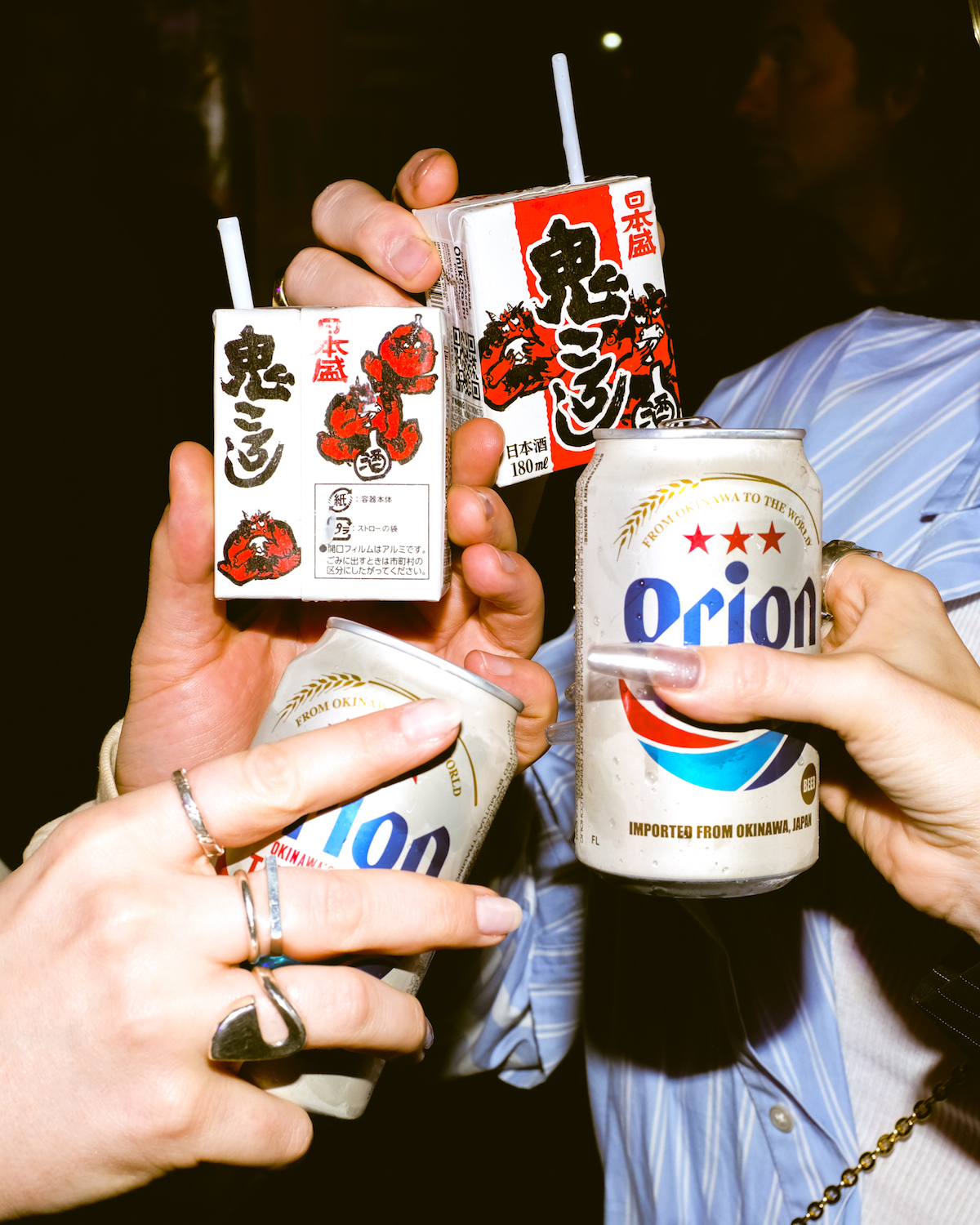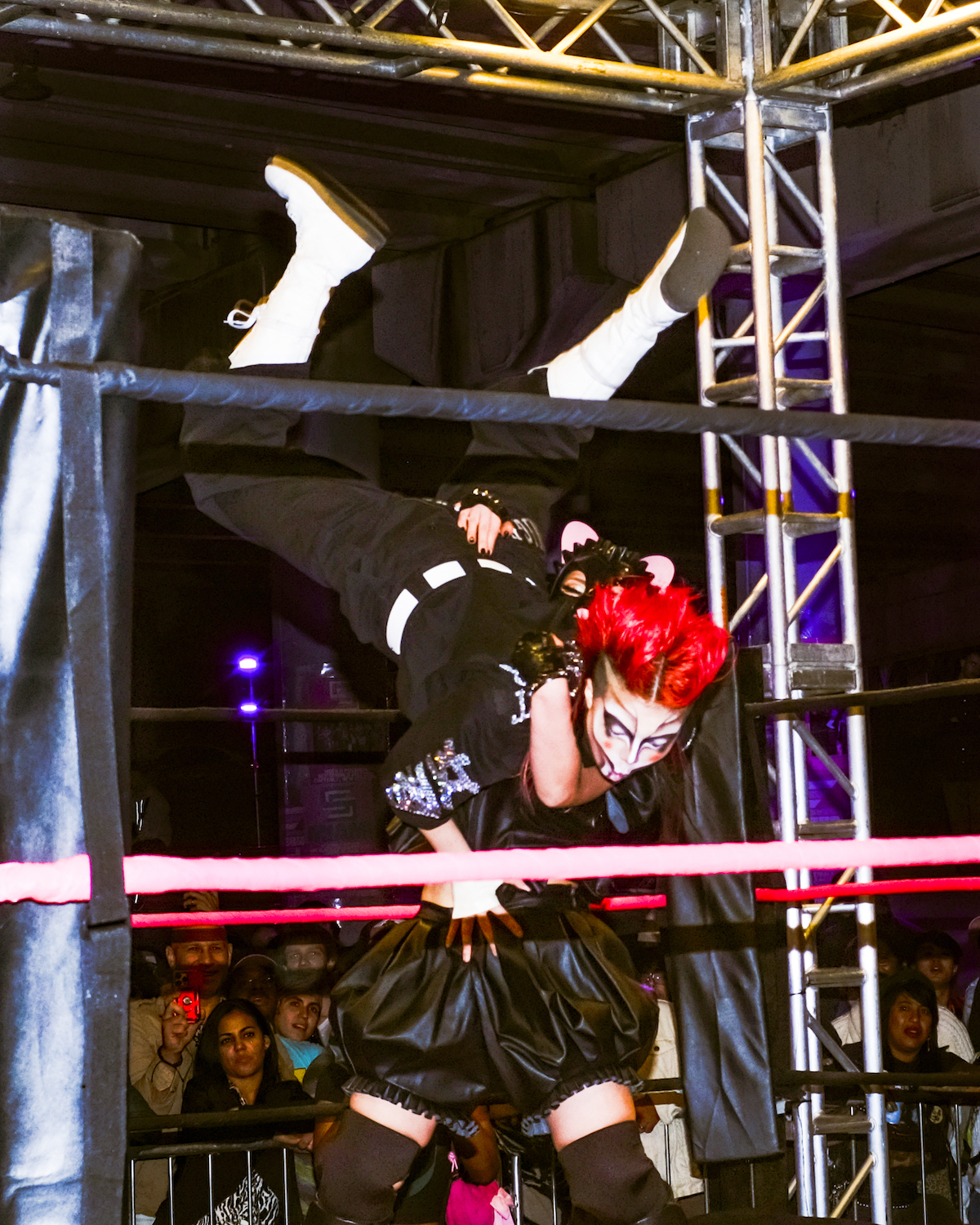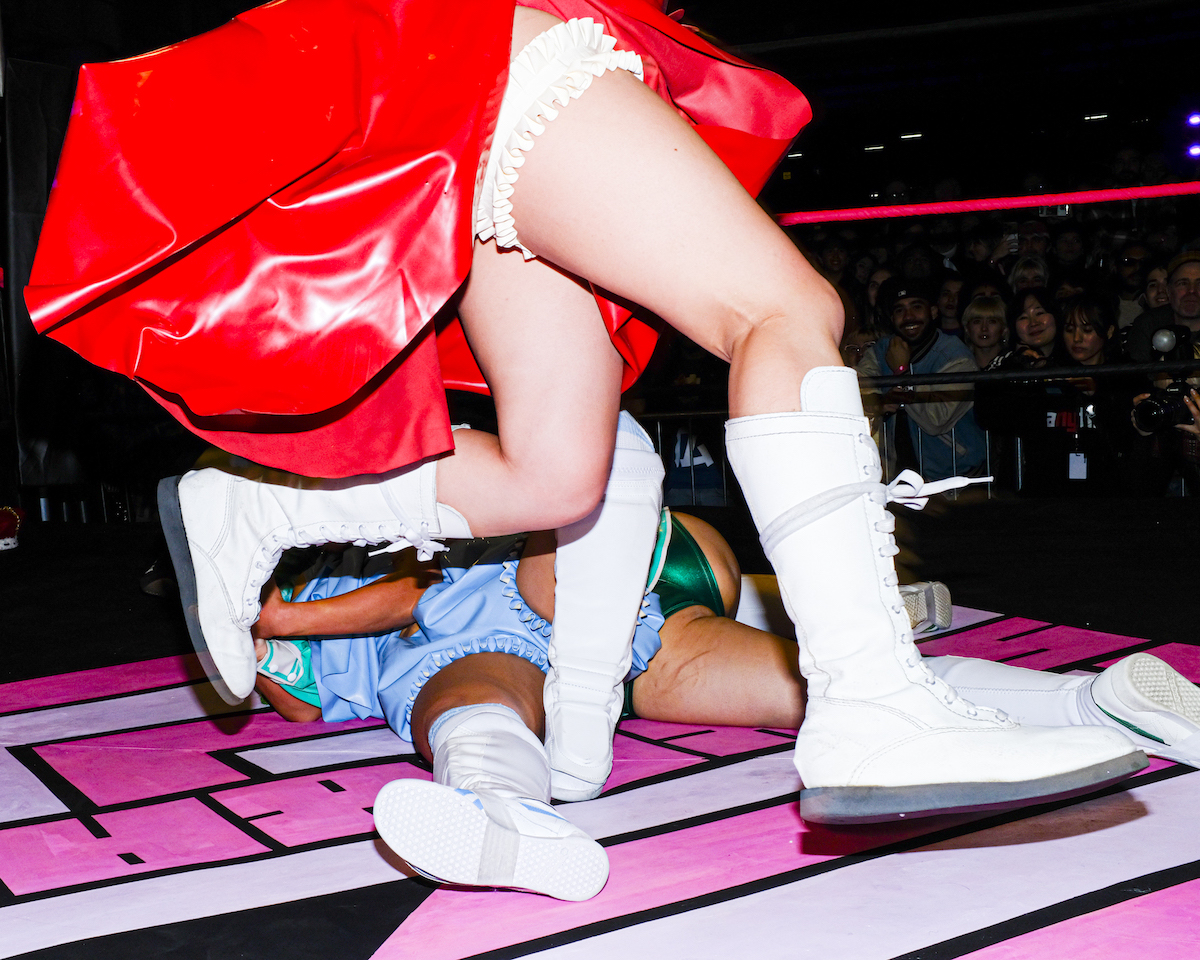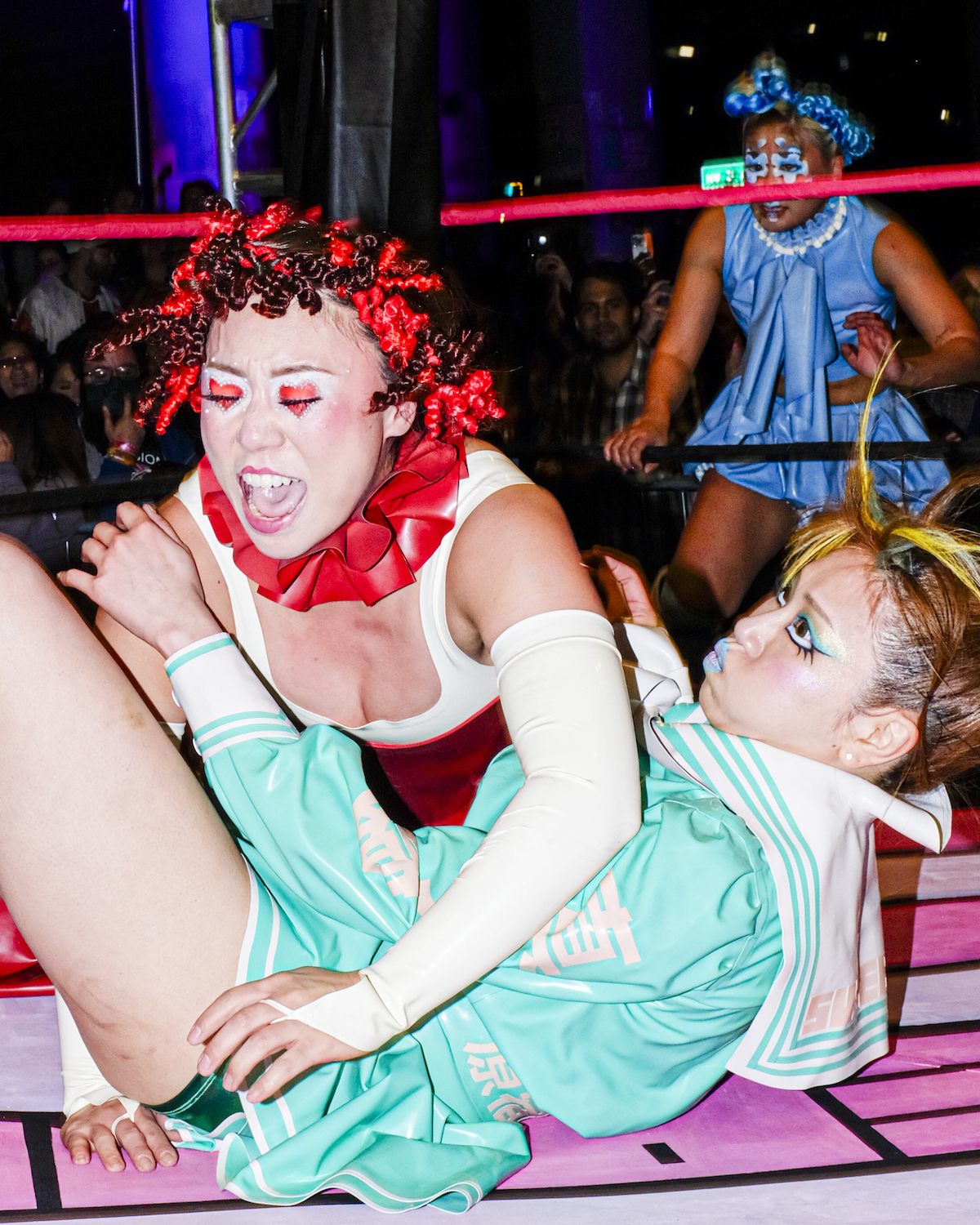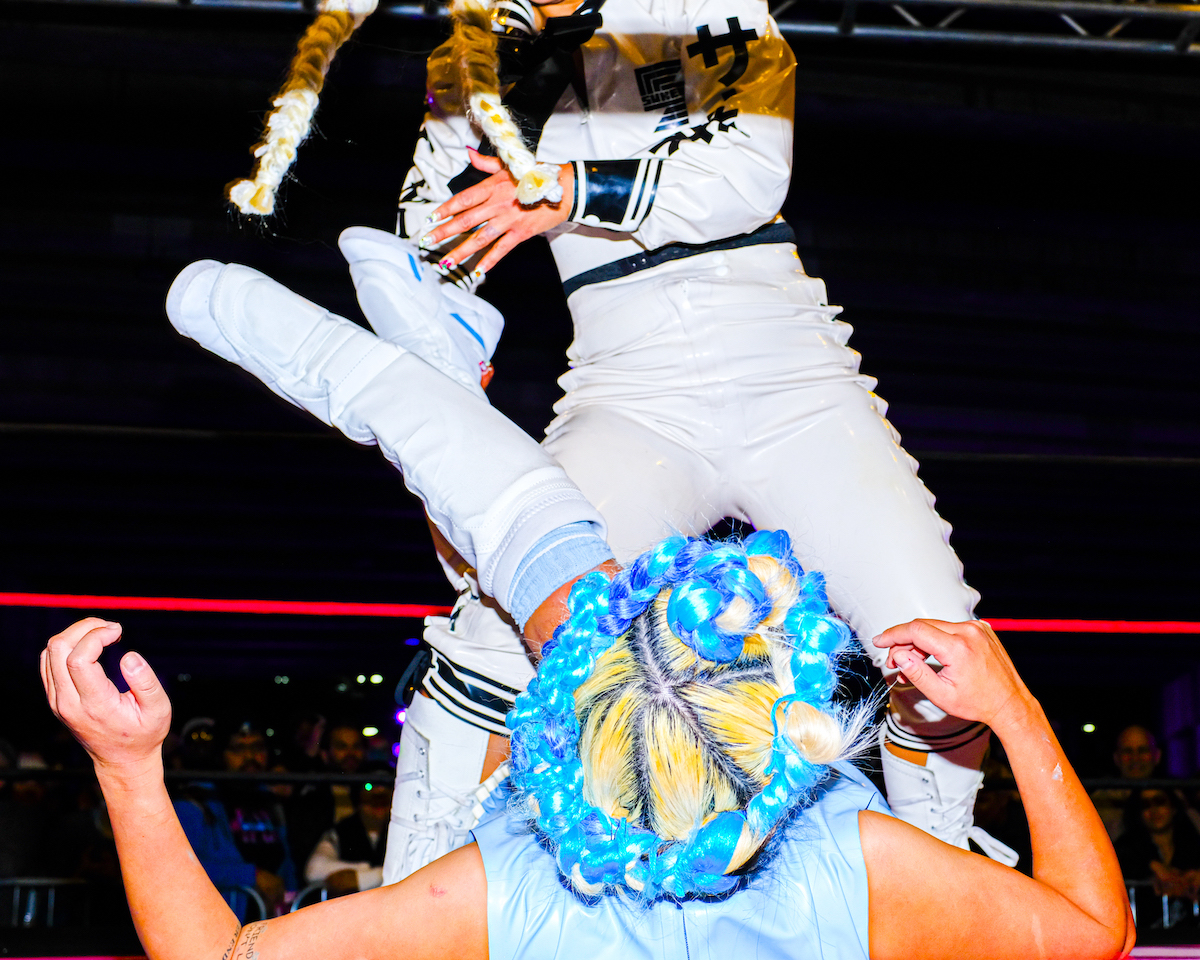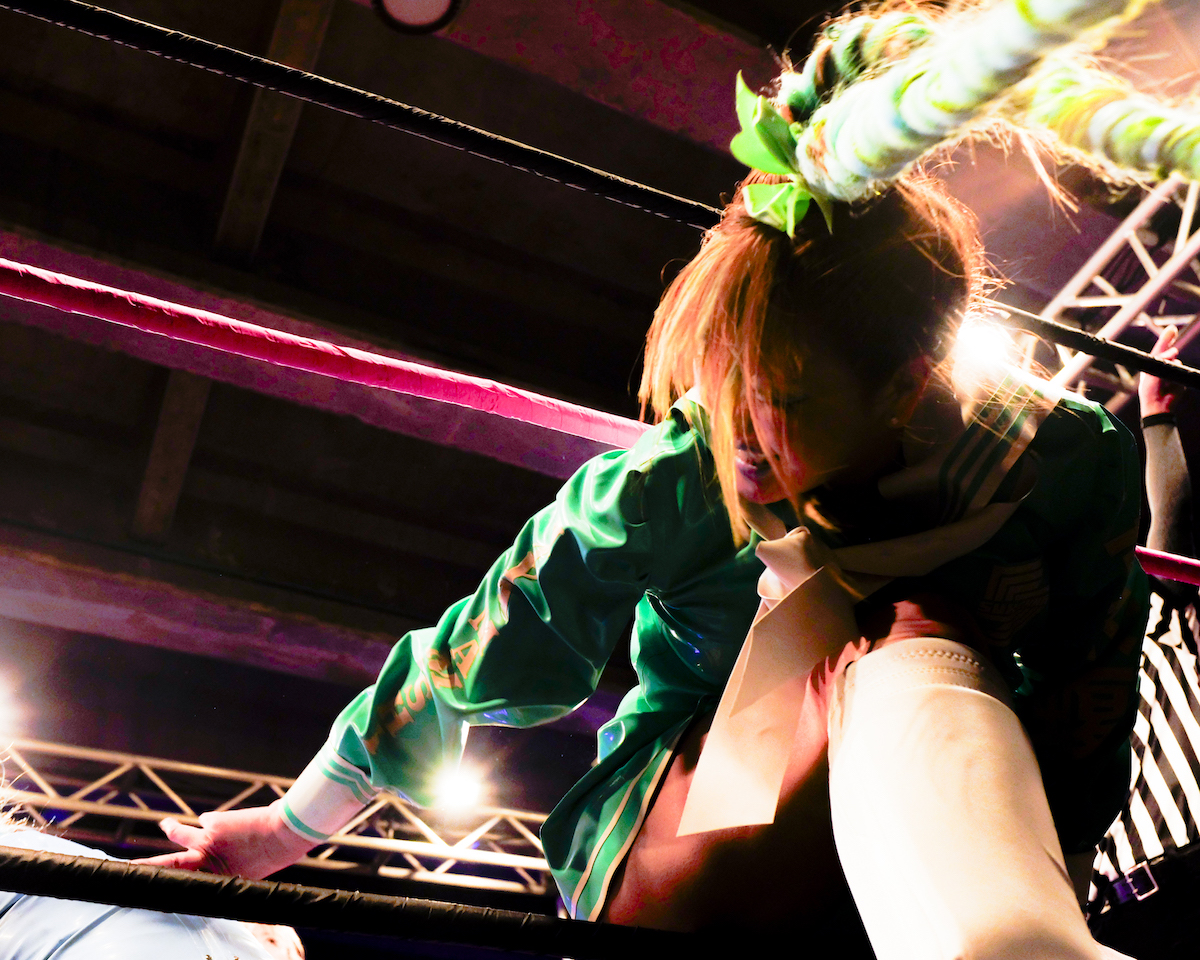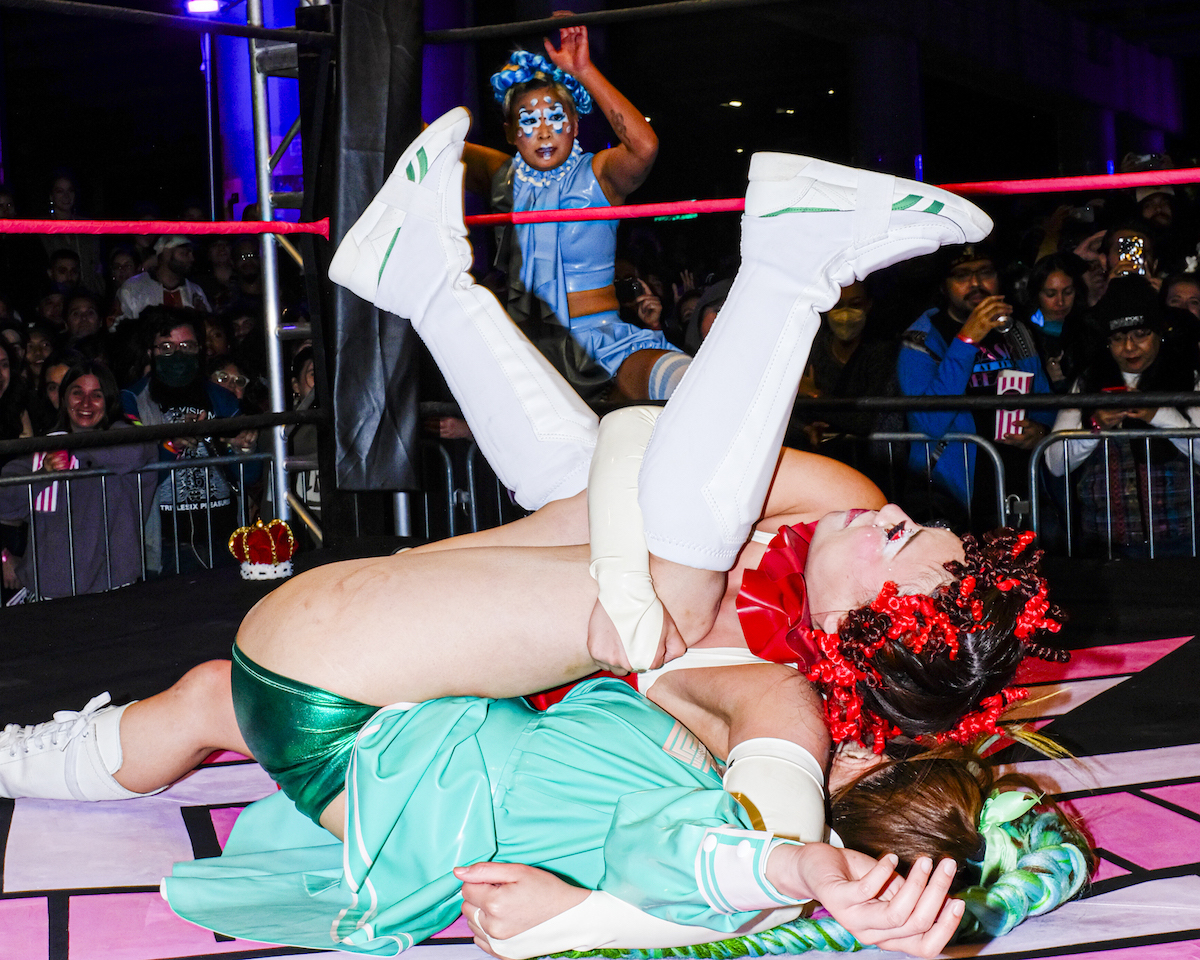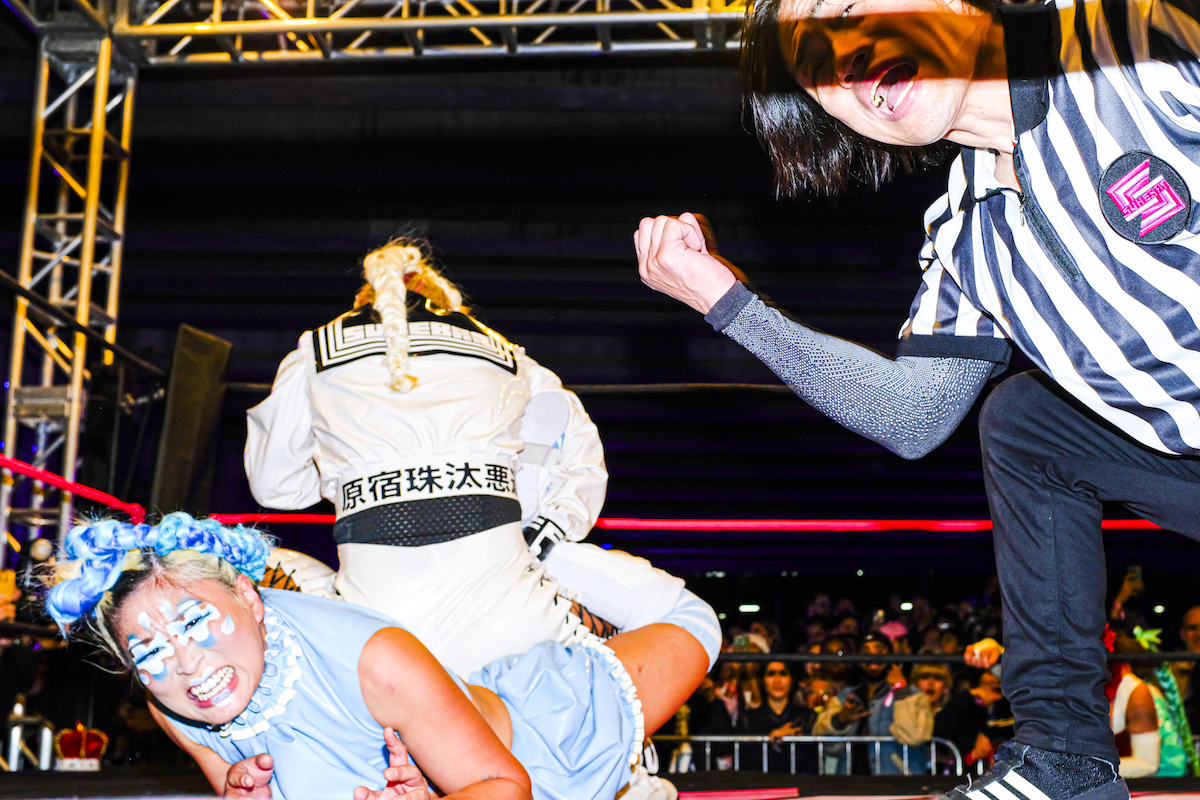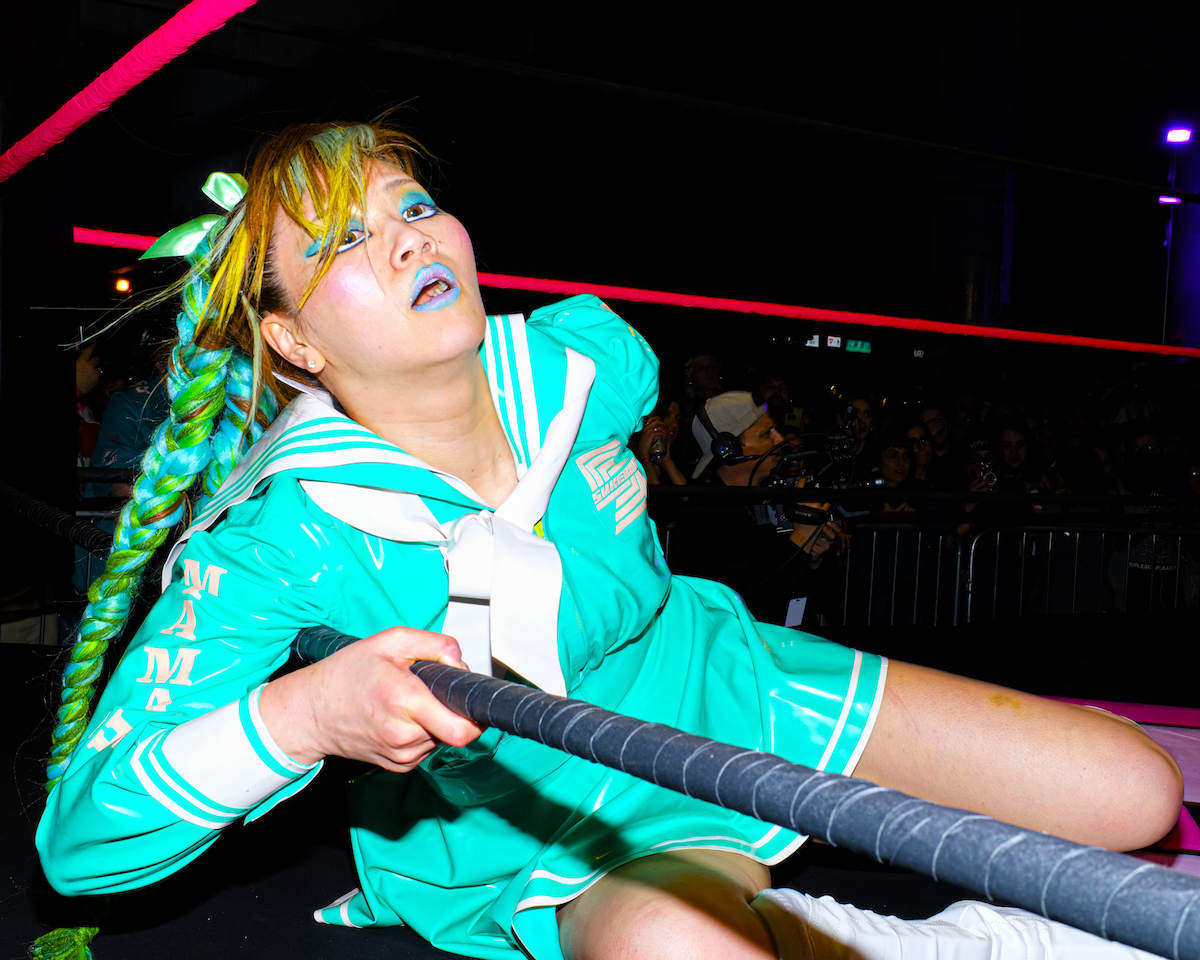Greater Land
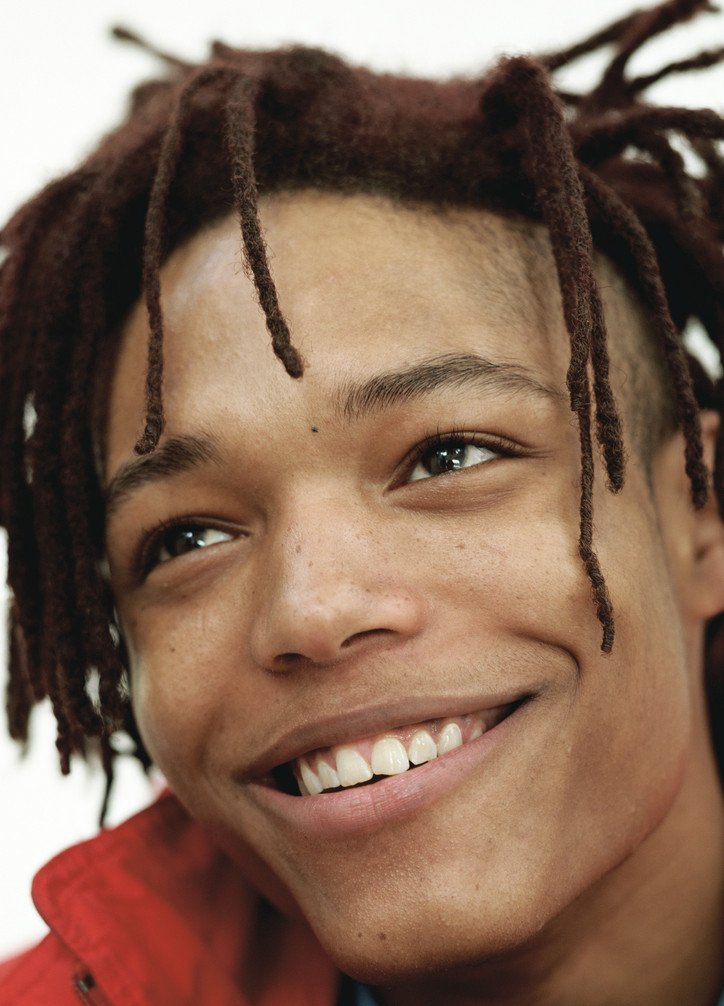
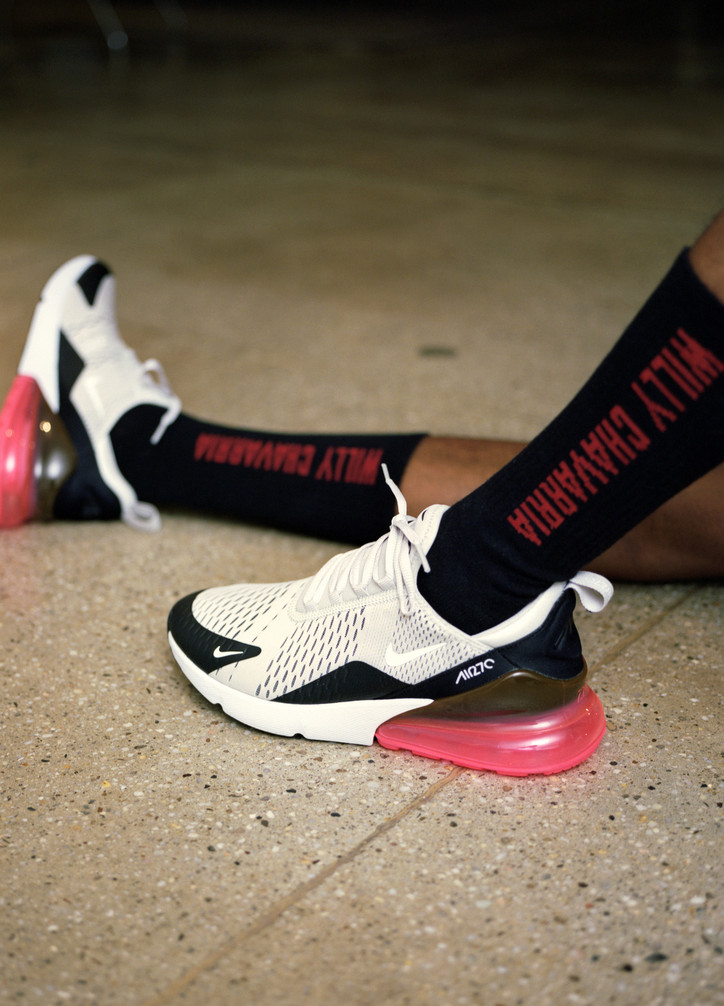
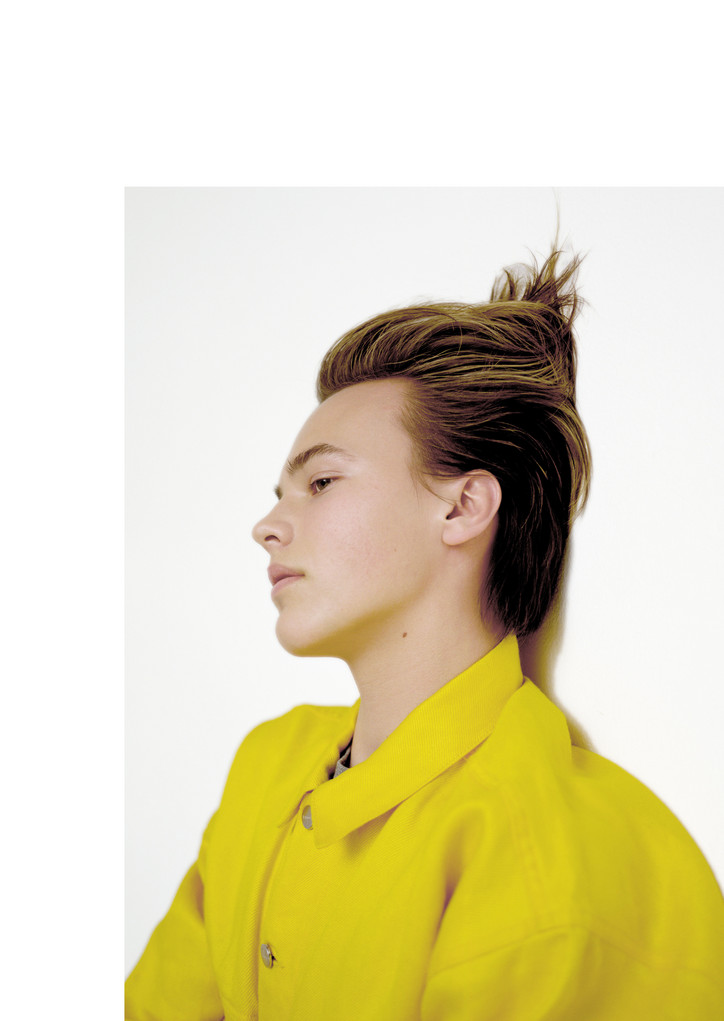
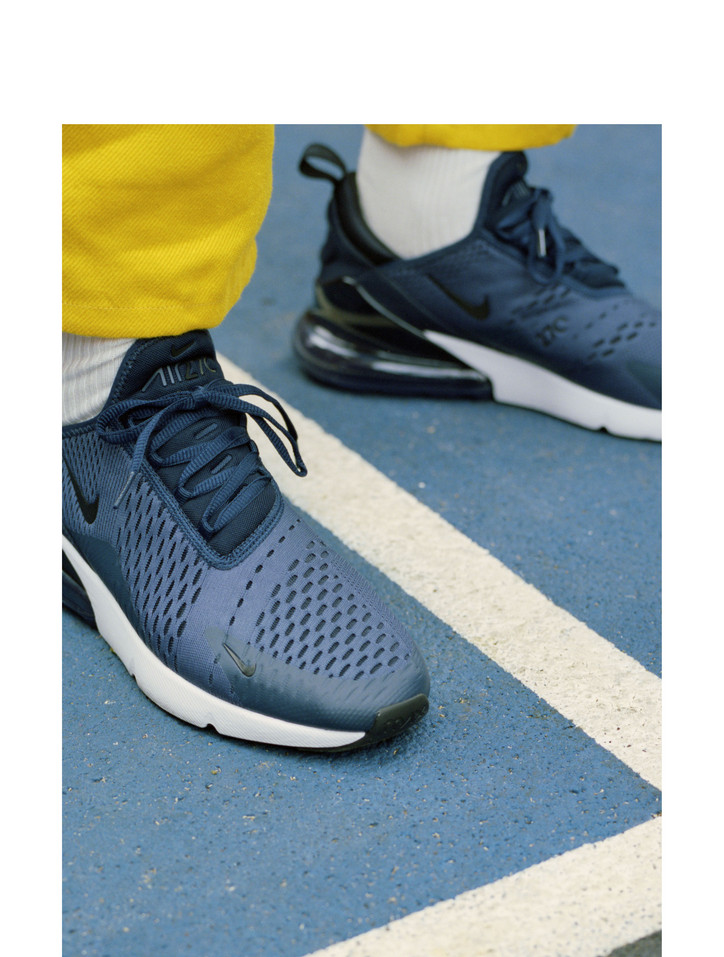

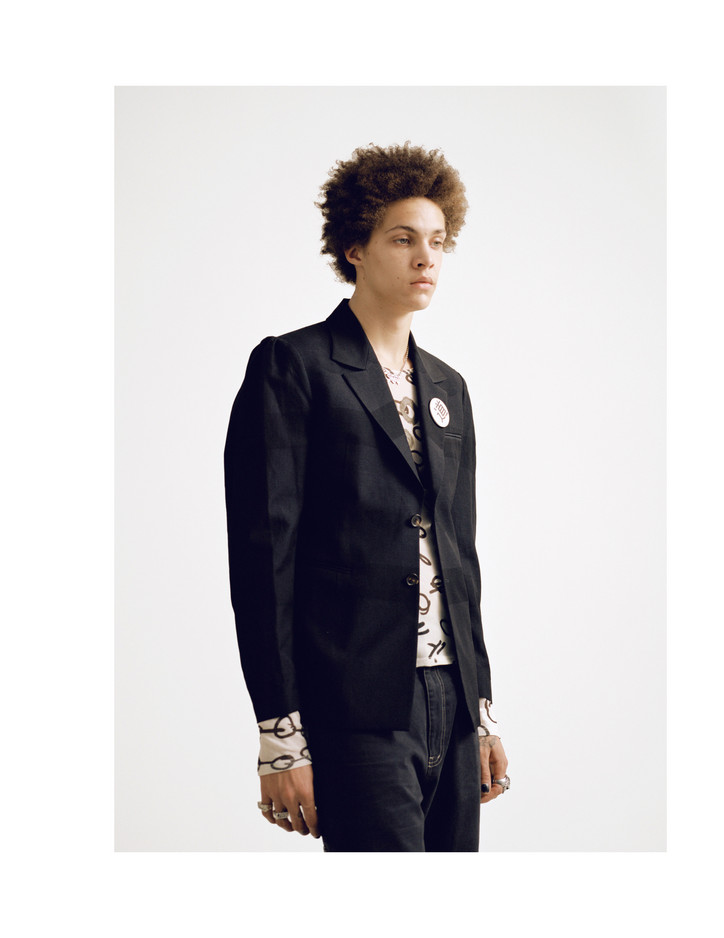
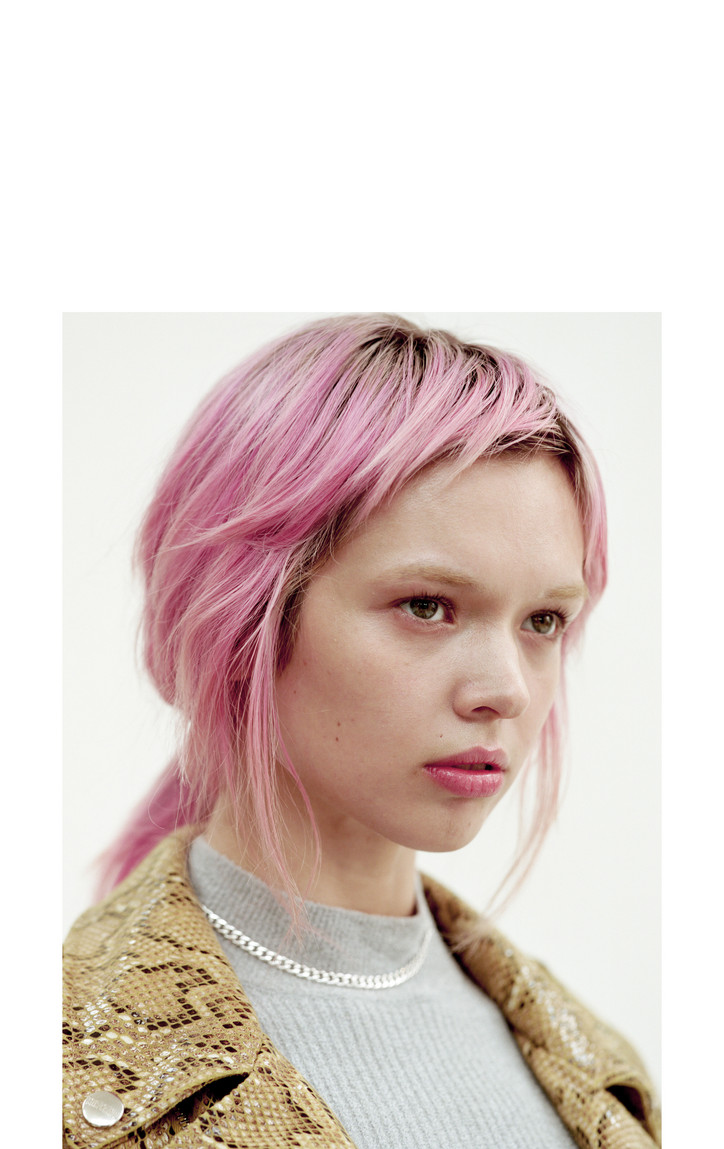
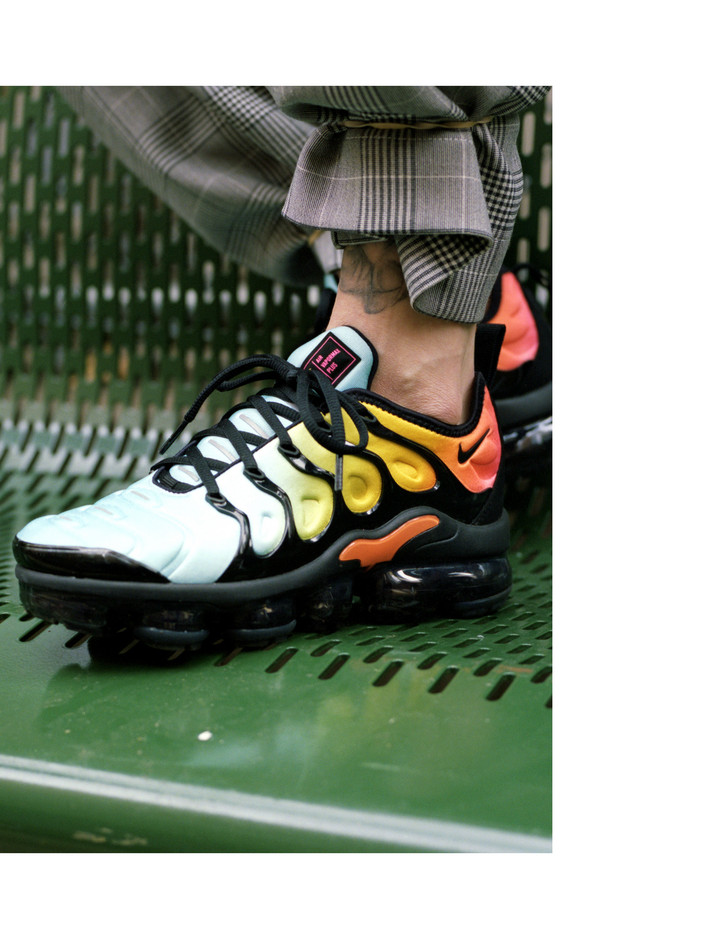
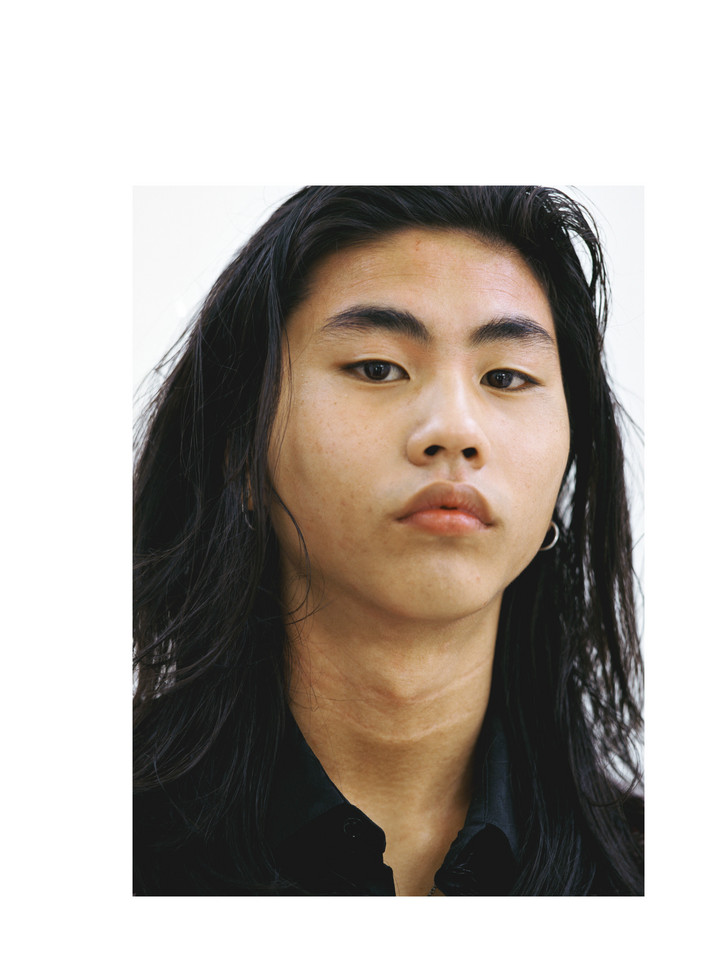
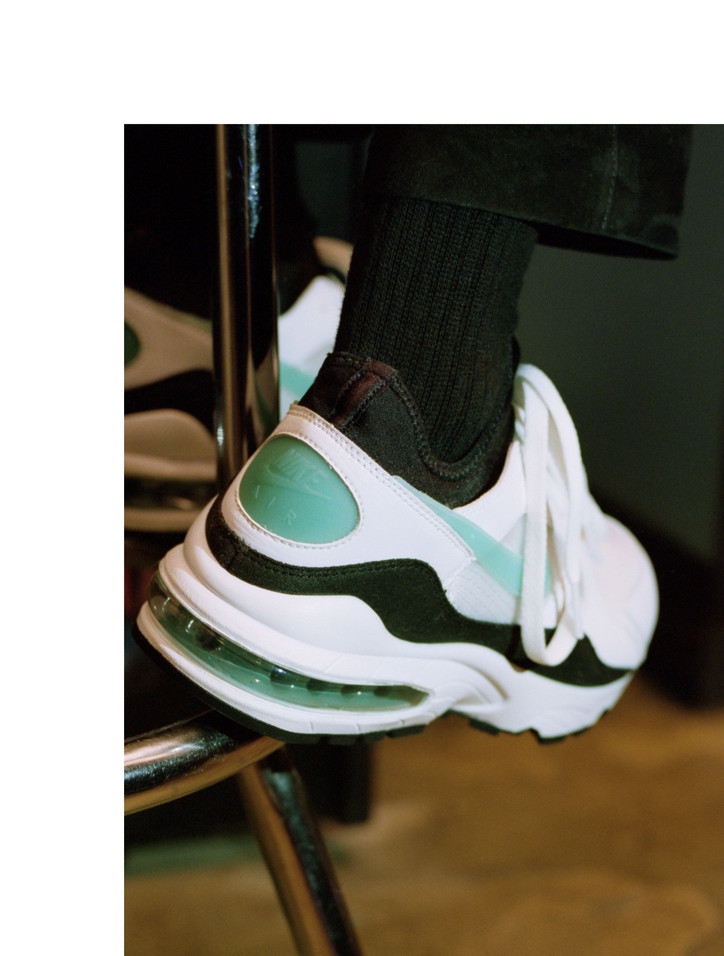
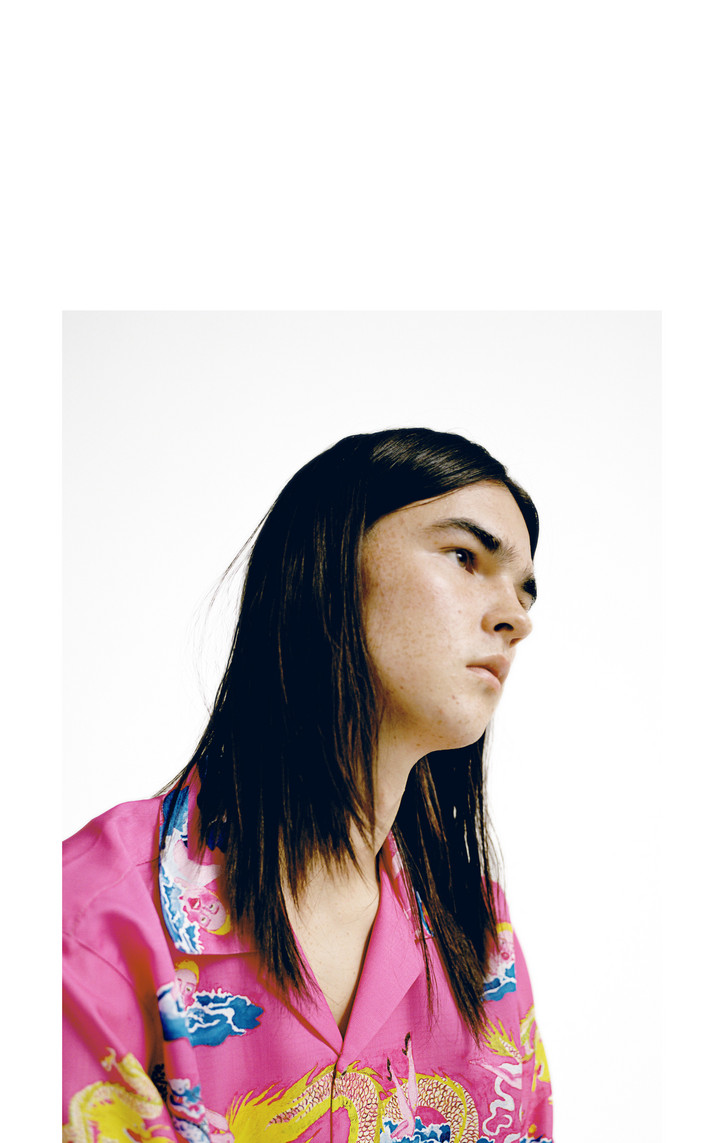
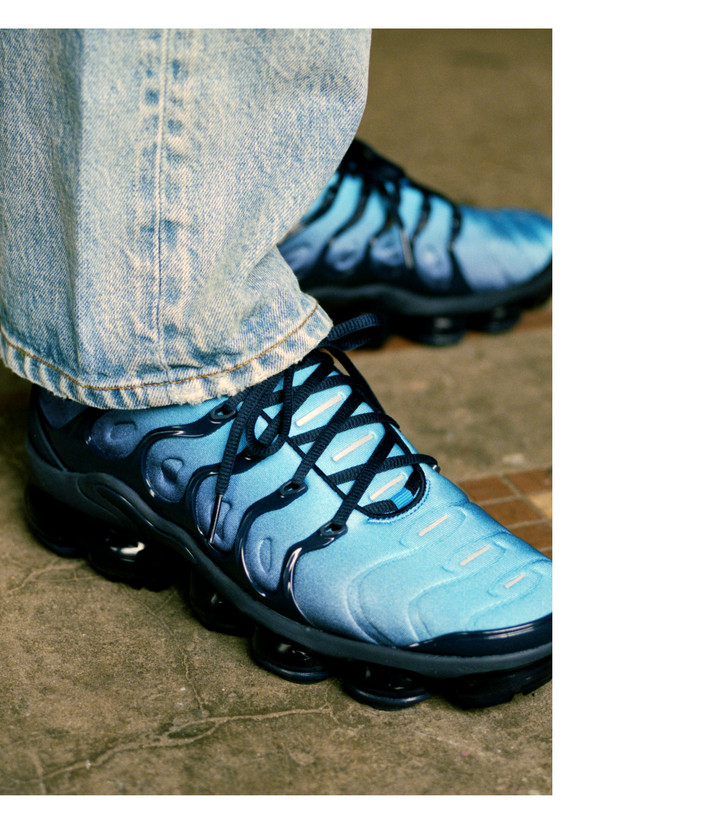
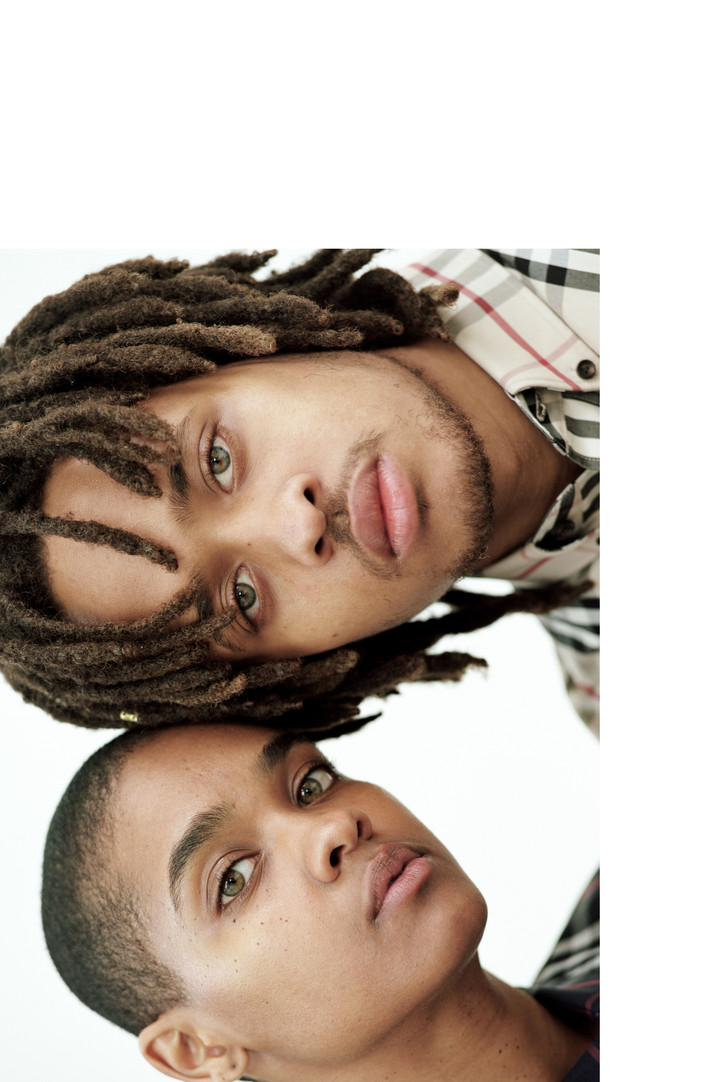
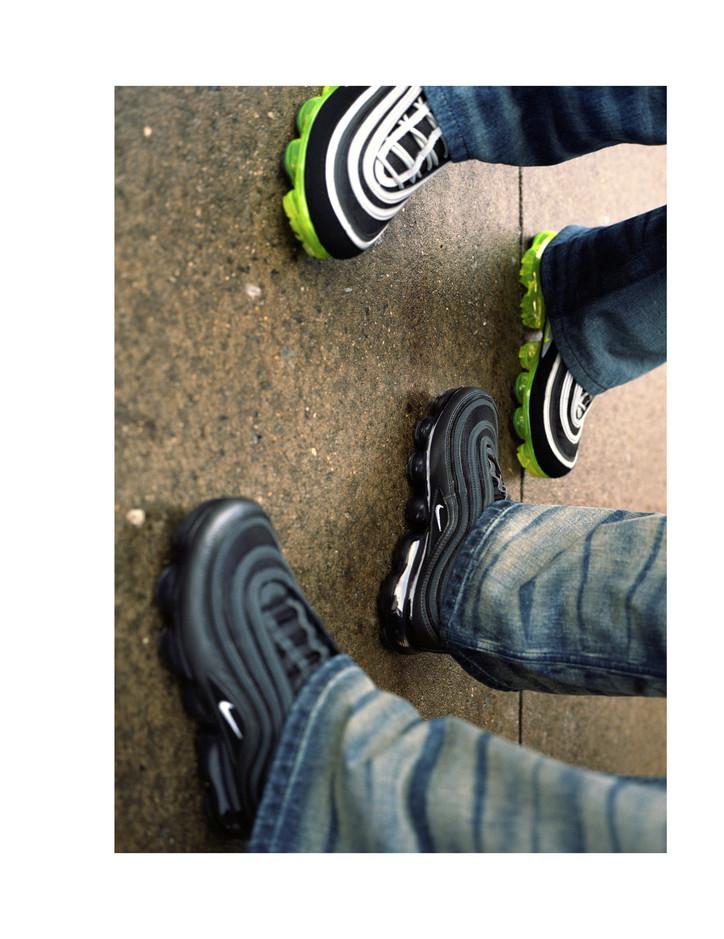
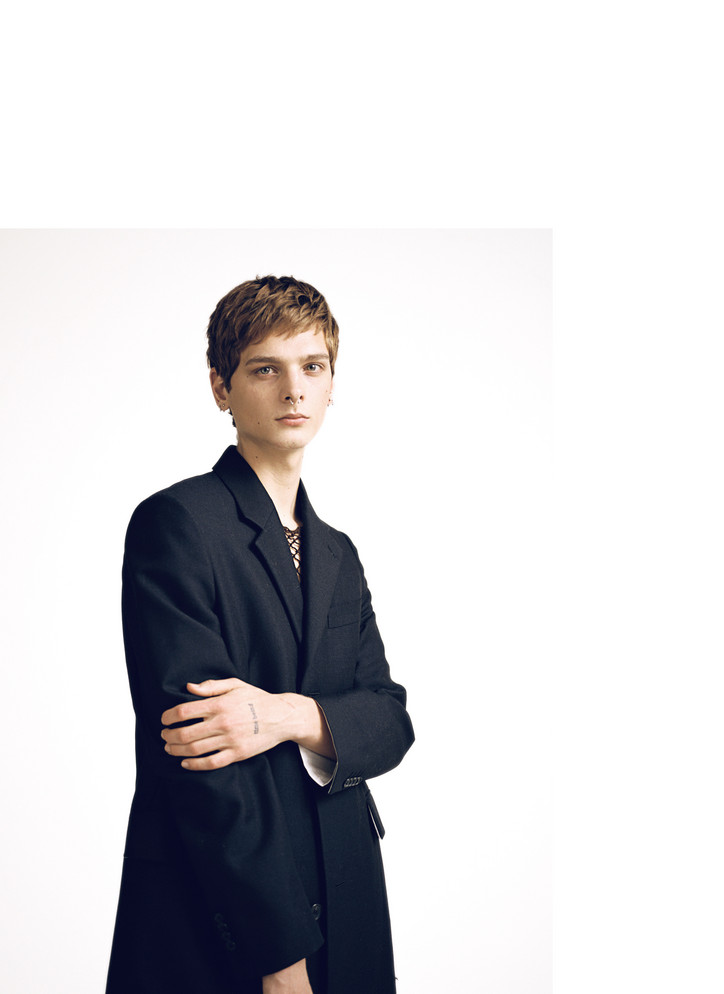
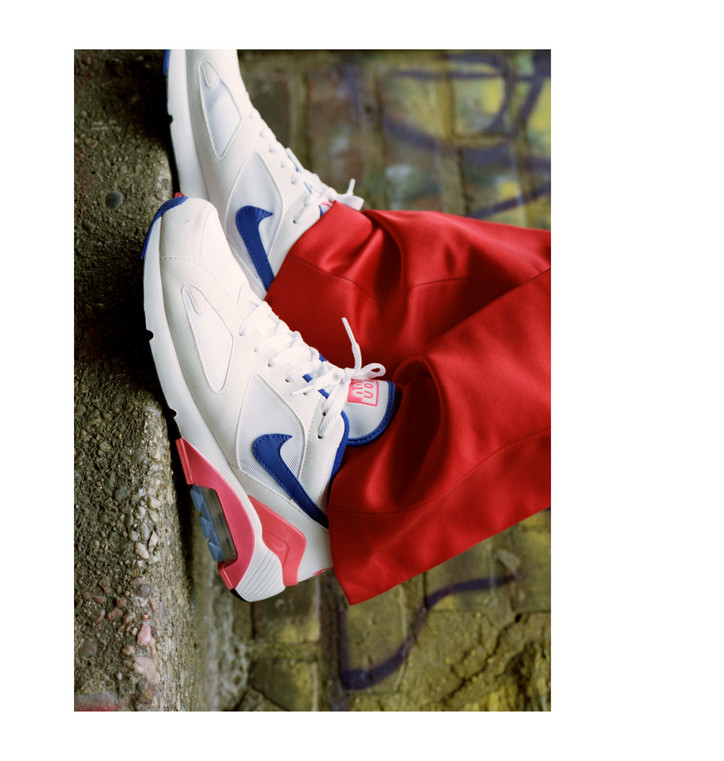
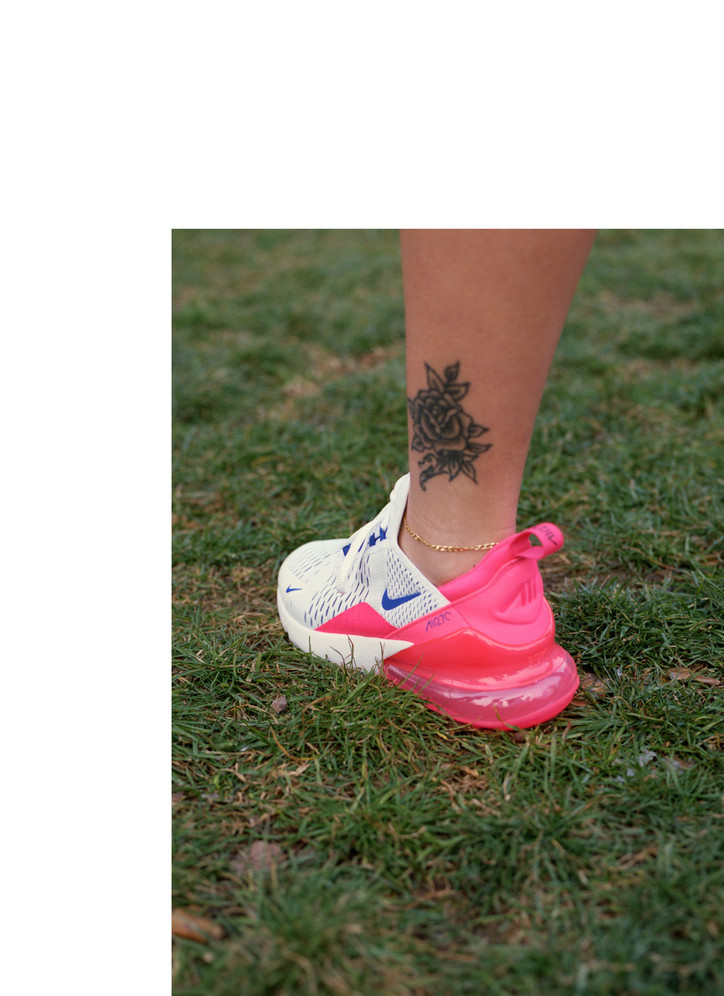
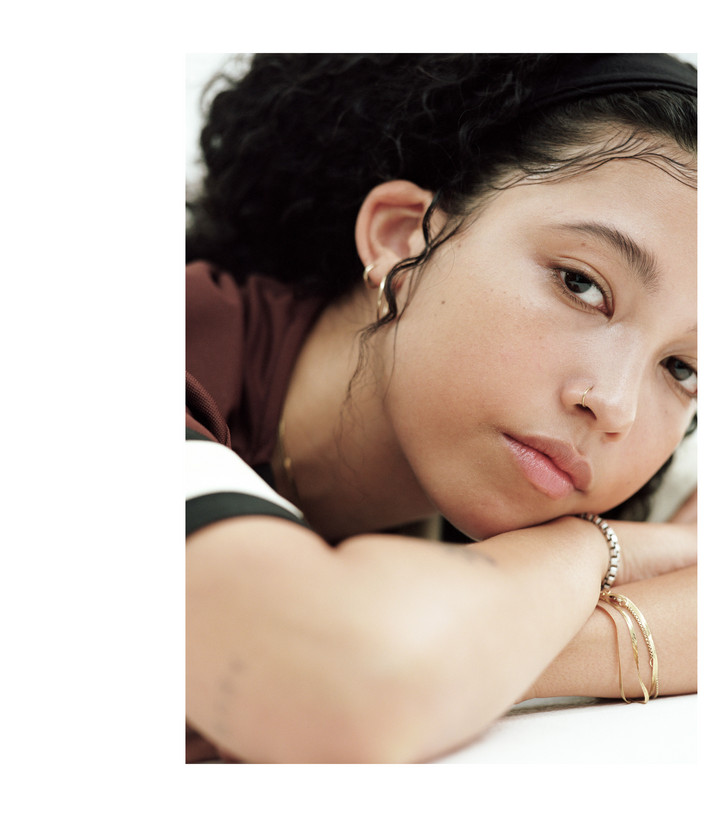
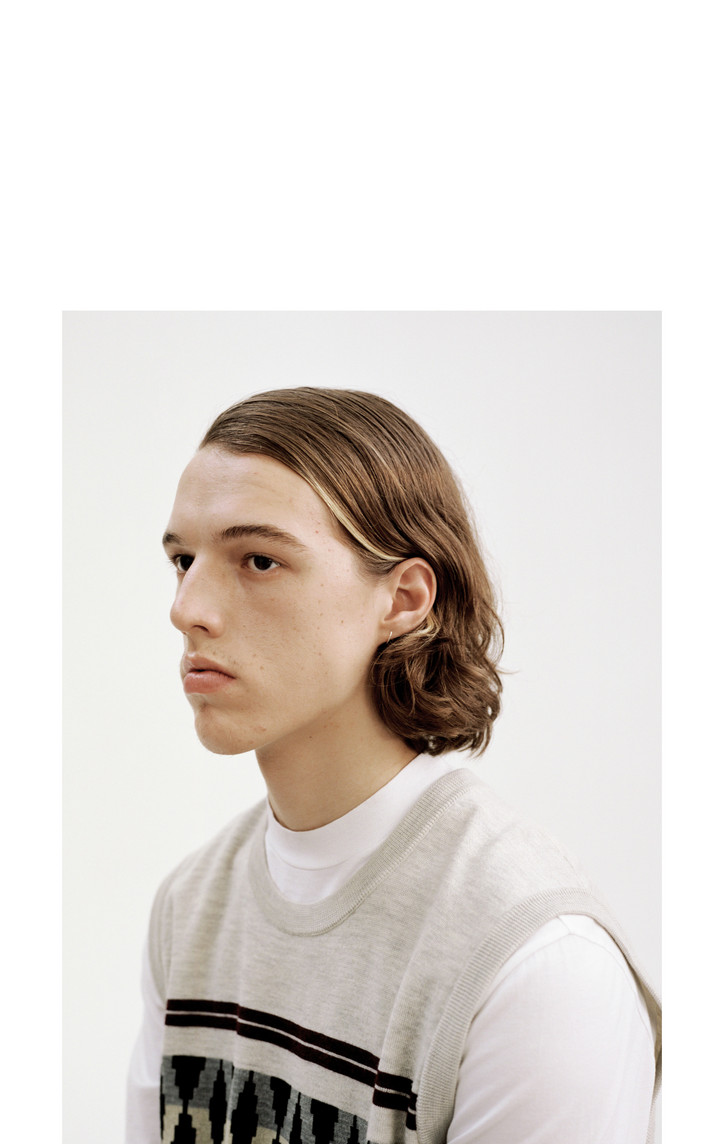
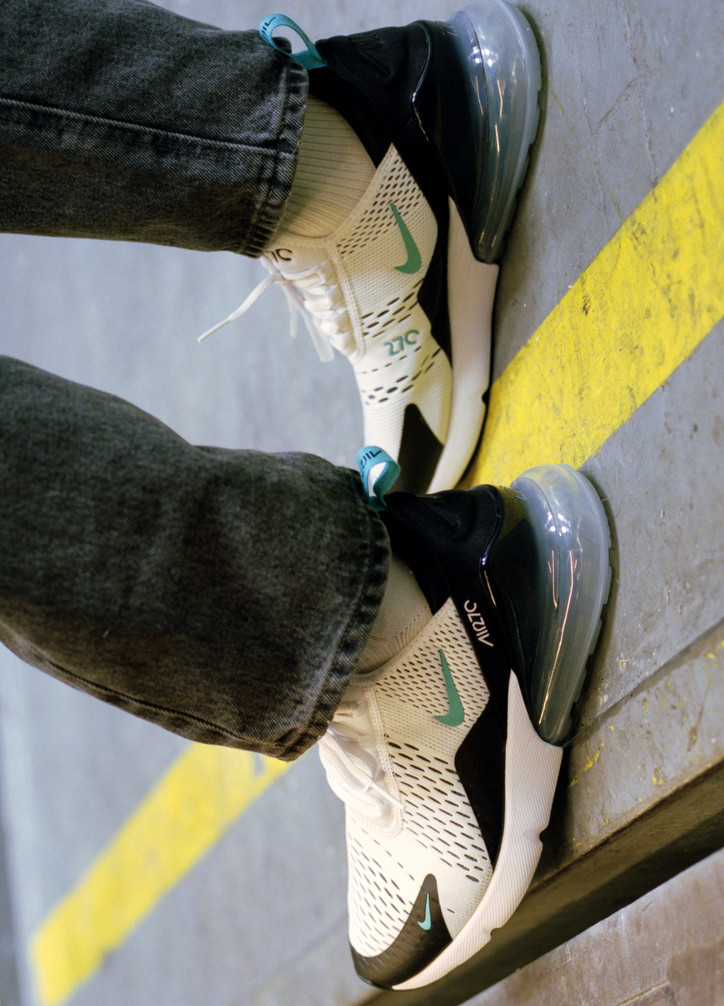
- Photo Assistant - Eduardo Silva
- Fashion Assistant - Sebastian Jean
- Production - Office Solutions
- Production Assistant - Sara Juric
Stay informed on our latest news!




















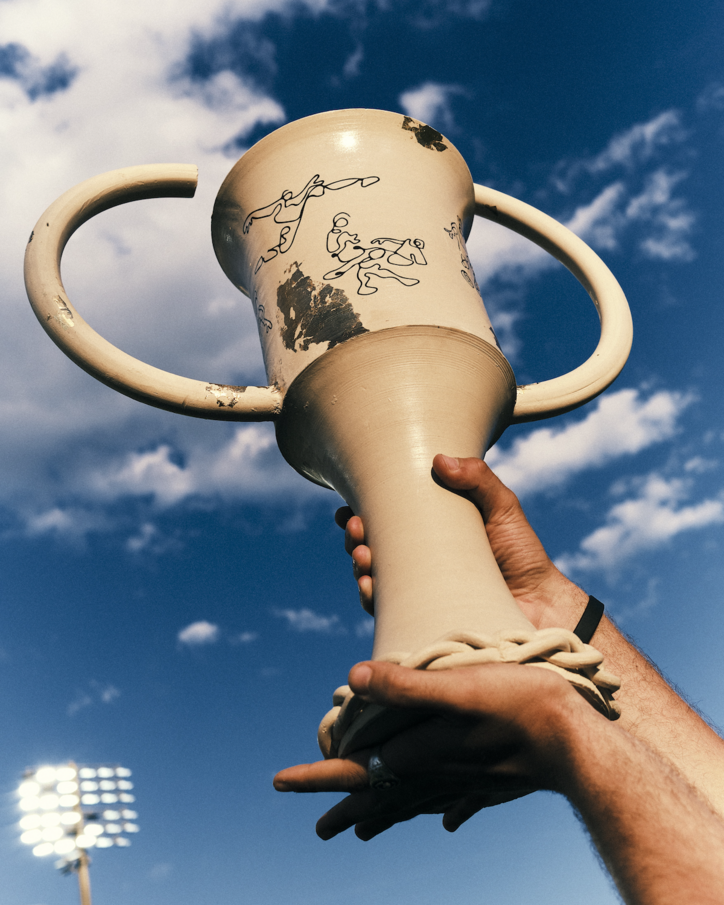
Founded by Zach Kovan, Ashton Miller and Schuyler DeBree, Footy Temple is a creative soccer collective to unite players, fans, artists and especially Americans who know little about the beautiful game. The trio gave custom footy-themed tarot readings in Times Square, made ‘The Holy Book’ of commandments and curated a gallery at Art Basel in Miami. Most recently, Footy Temple hosted pick-up games for TST attendees and distributed spiritual pamphlets to further indoctrinate U.S. sports fans to this global religion, footy.
Miller, former Duke Blue Devil, ex-professional footballer and current midfielder for Soccerhead FC, asks, “What separates our footy culture from people who really die over this sport in other parts of the world? Ultimately we concluded Americans aren't religious about soccer. How can we get them to become religious about this game?”
There’s a reason why Pope Francis warns the world that Jesus is more important than football. In Argentina, fans practice “Iglesia Maradona,” honoring the late footballer Diego Maradona with their own set of commandments. In Brazil, Maracanã Stadium transforms into a place of worship where fans pray for their club’s success. In the UK, about 900,000 people attend Premier League and other nationwide matches, a number comparable to Sunday churchgoing residents. People practice football-as-religion differently across the globe. Still, it remains a unifying passion on and off the pitch. More countries belong to FIFA than the United Nations.
But Americans, overstimulated by the NFL, NBA and MLB, often dismiss the beautiful game as dull due to delayed gratification of low scores and long-form drama. TST, launched in 2023, addressed this by giving American sports fans what they want. Something faster, quicker, more exciting. In this “World Cup-style” tournament, teams play 7v7 on a smaller field with 20-minute halves. The winners take home one million dollars. Second place gets nothing. But high stakes aren’t just about money or pride. It’s to get Americans to feel something.
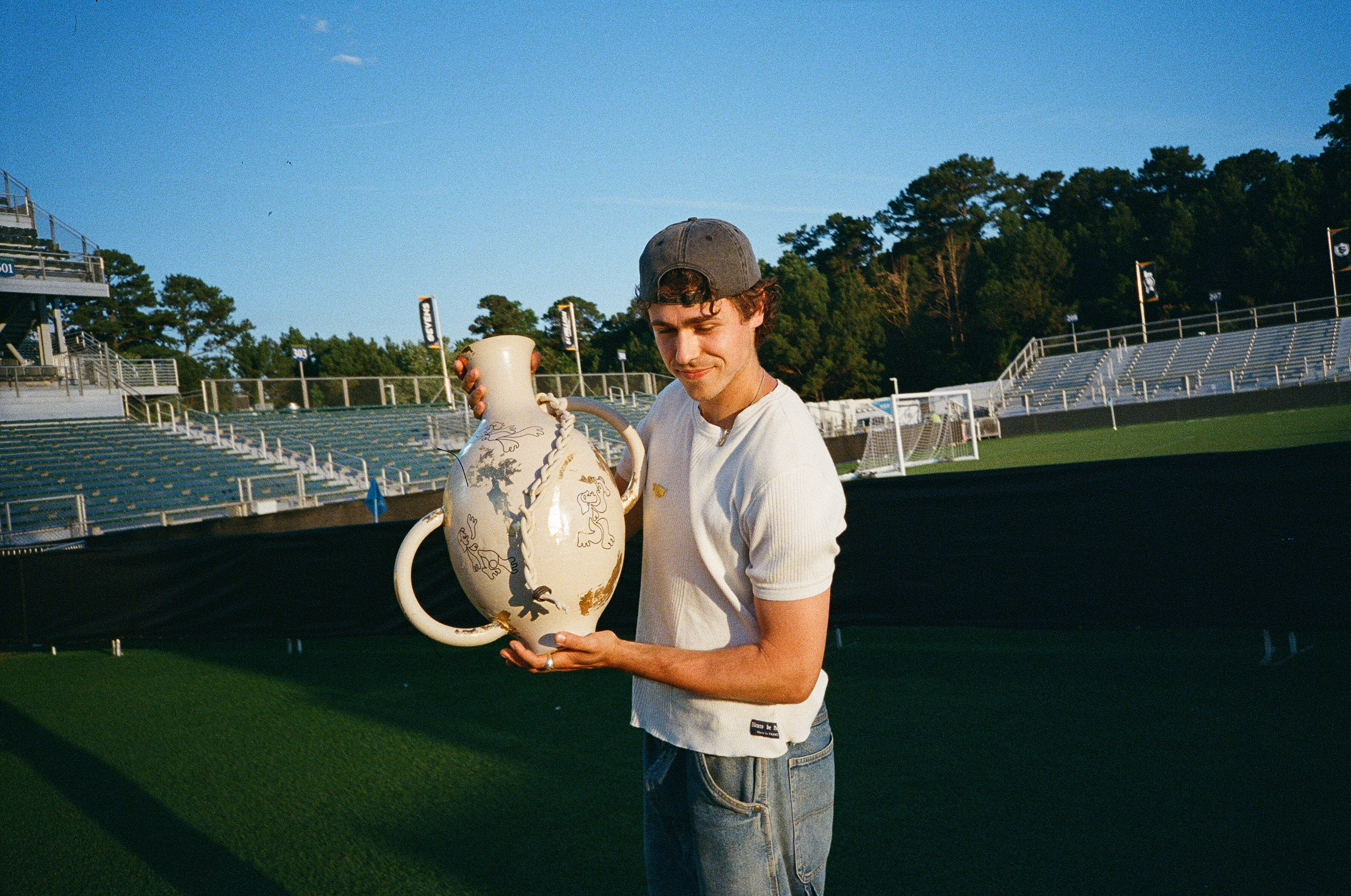
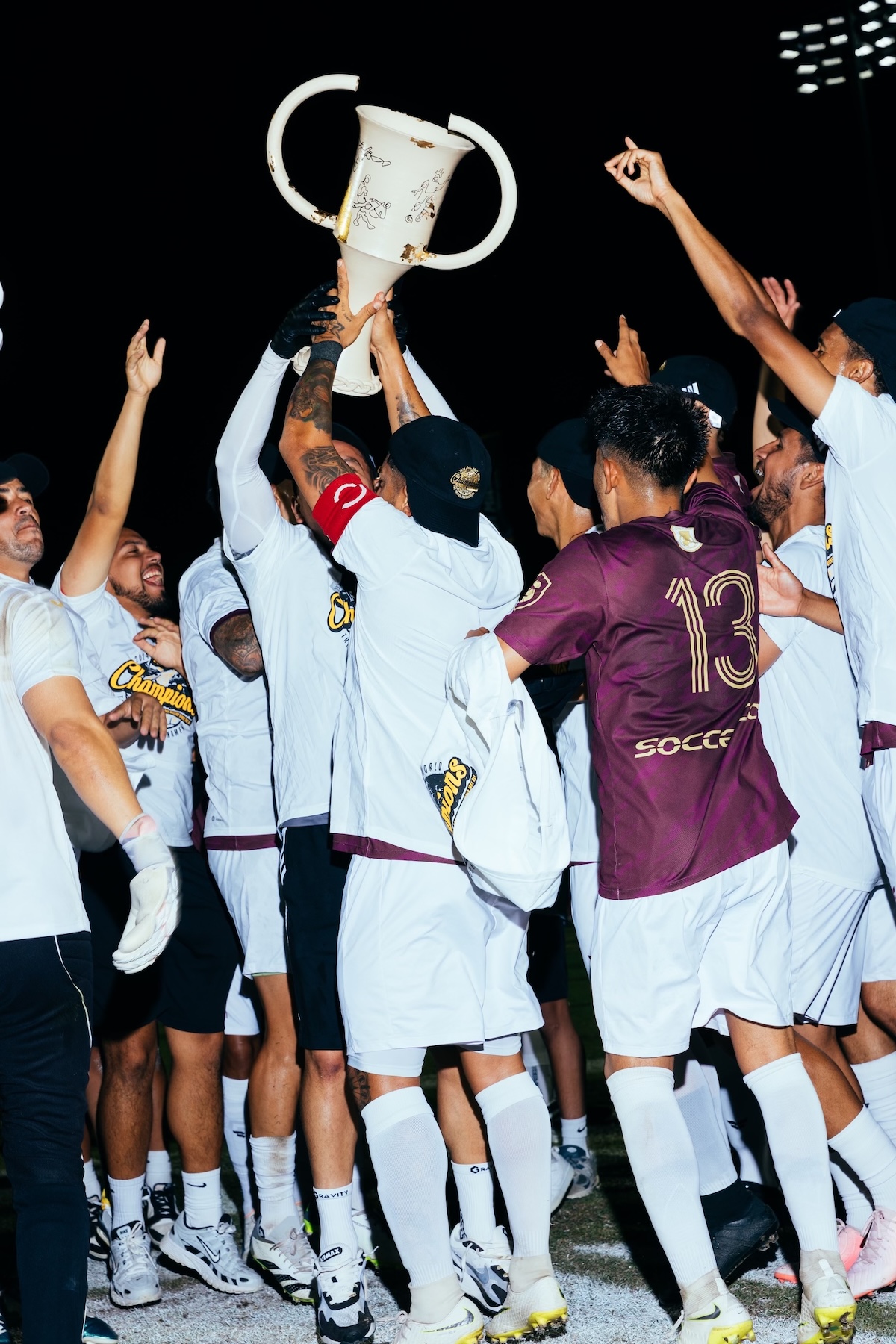
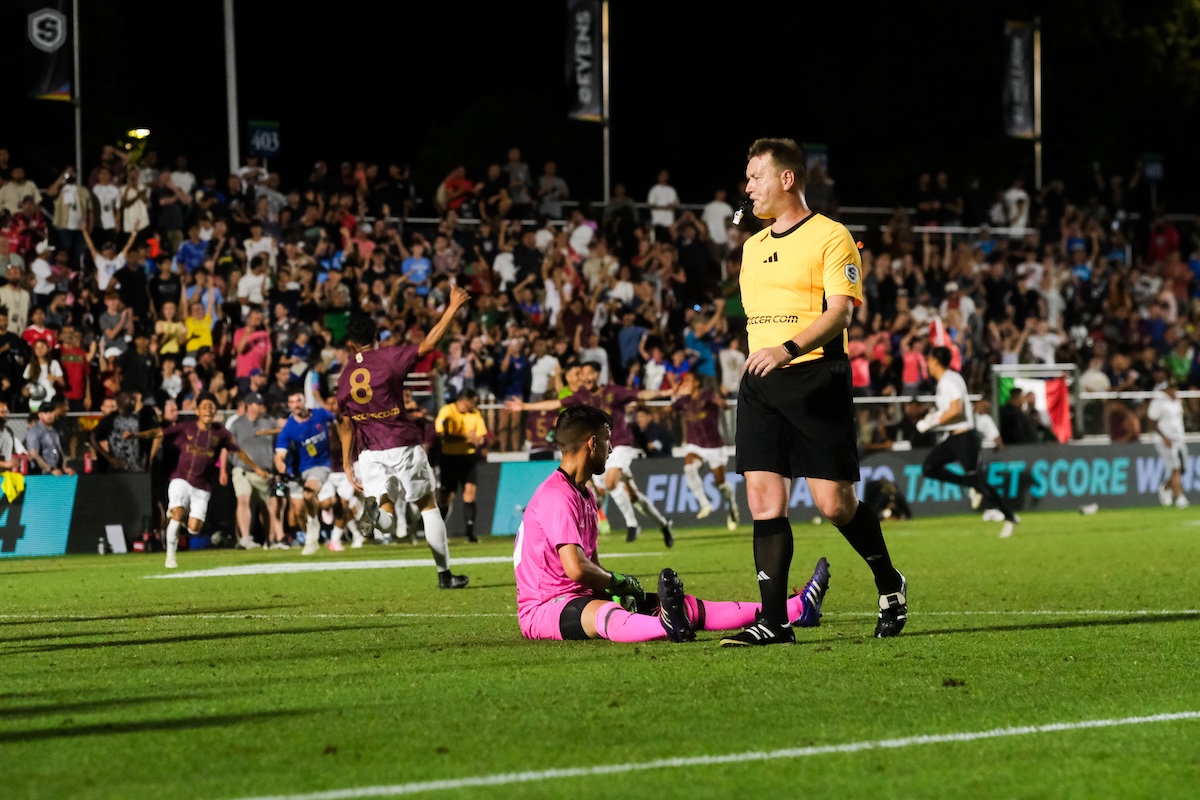
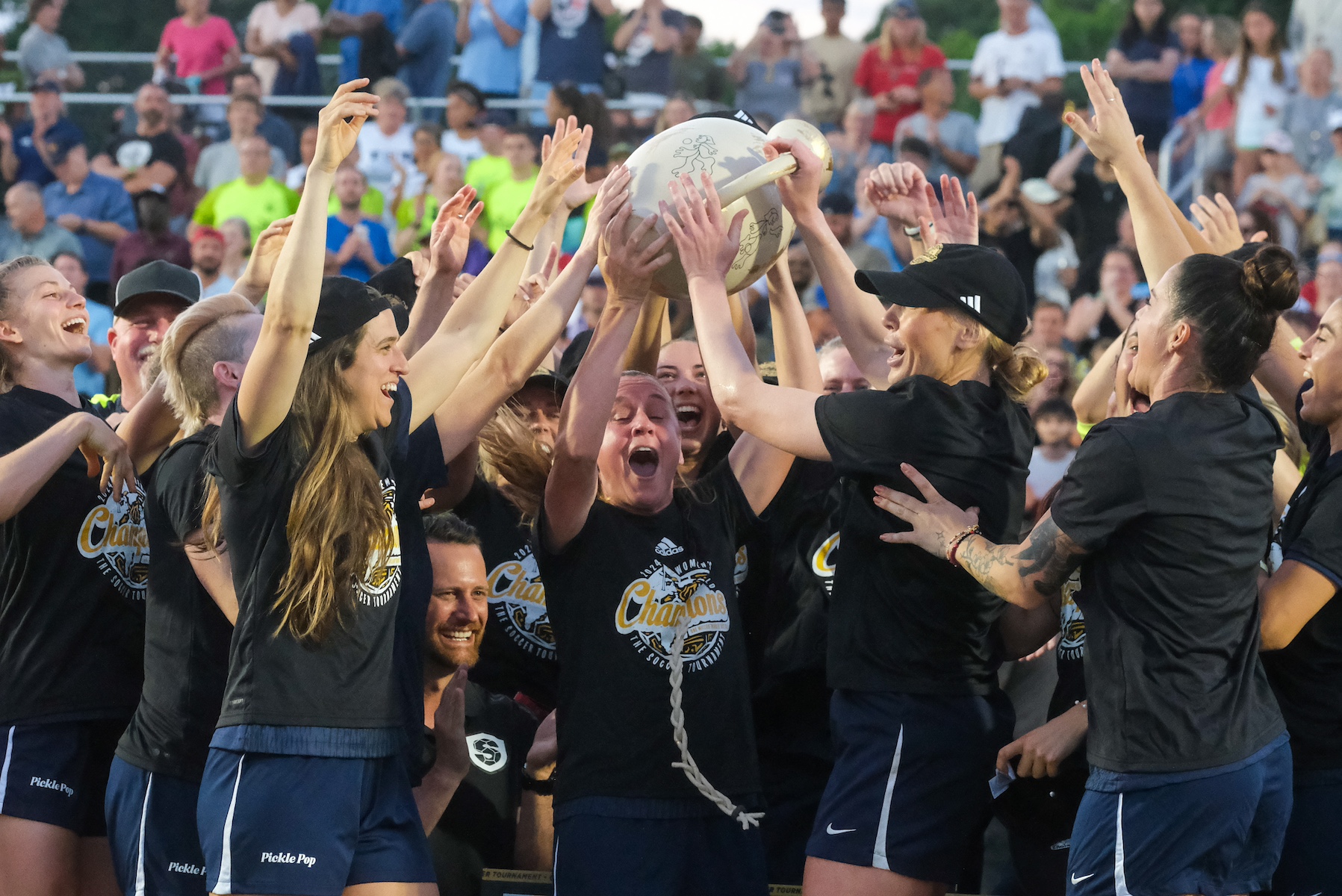
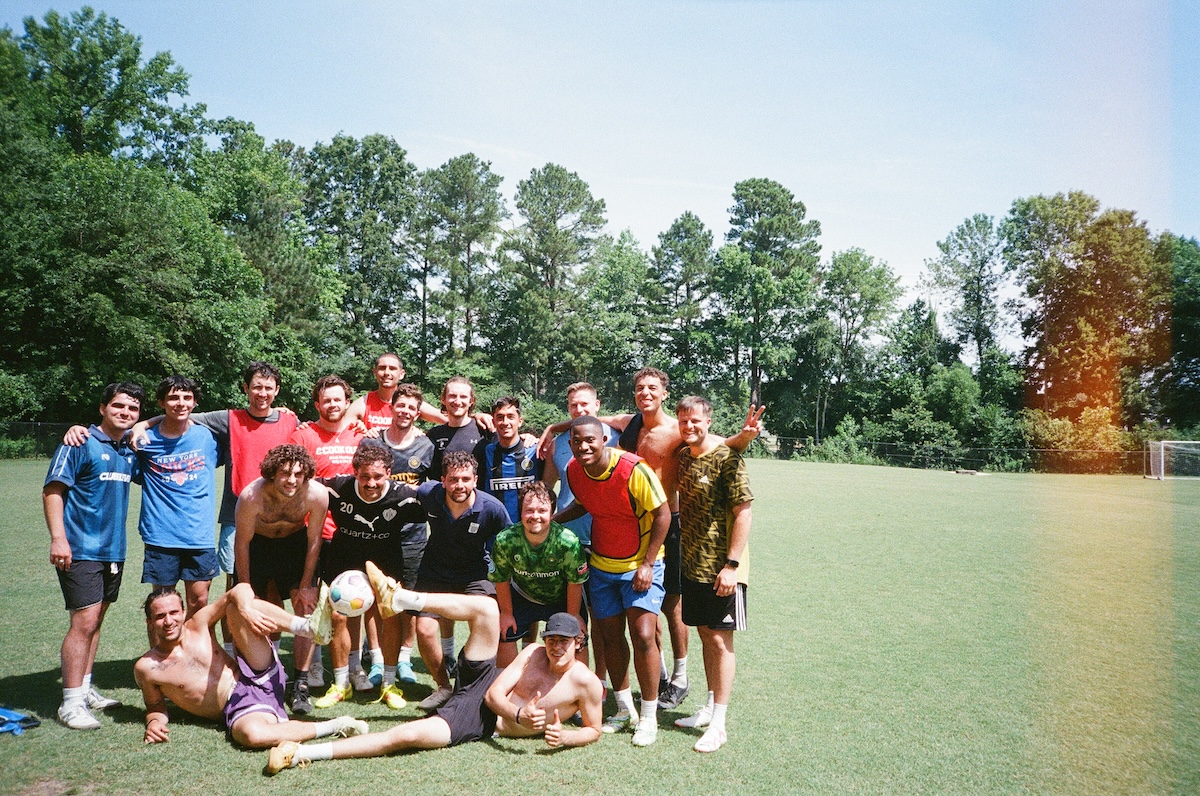
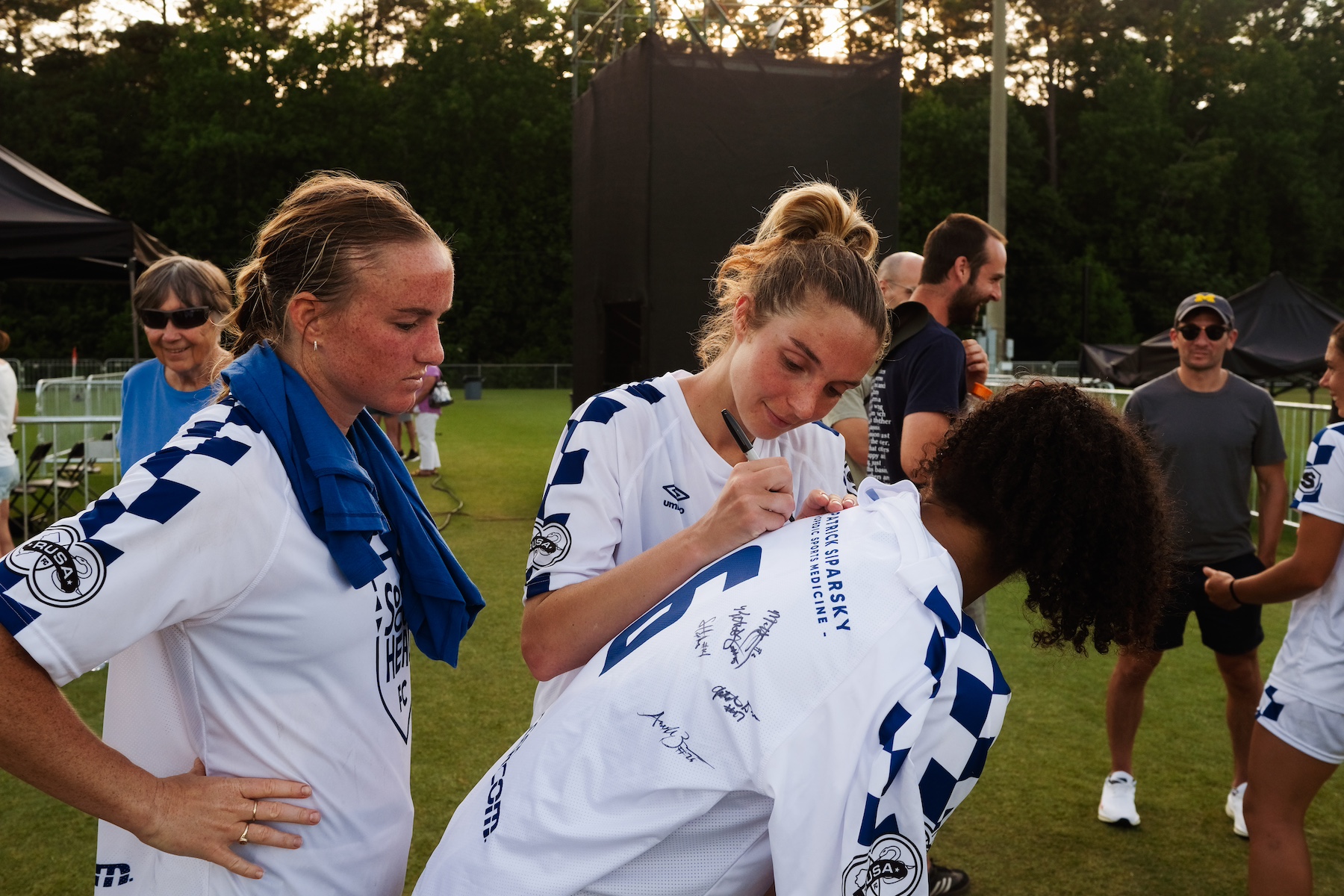
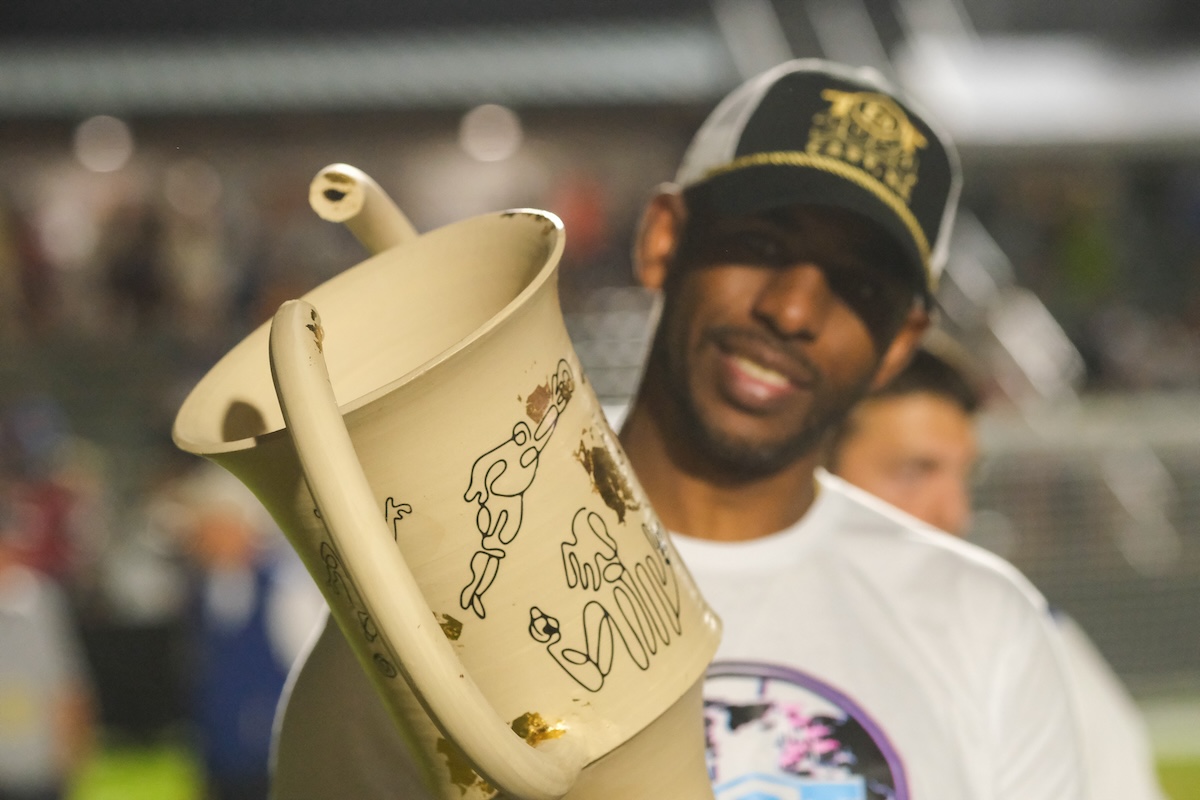
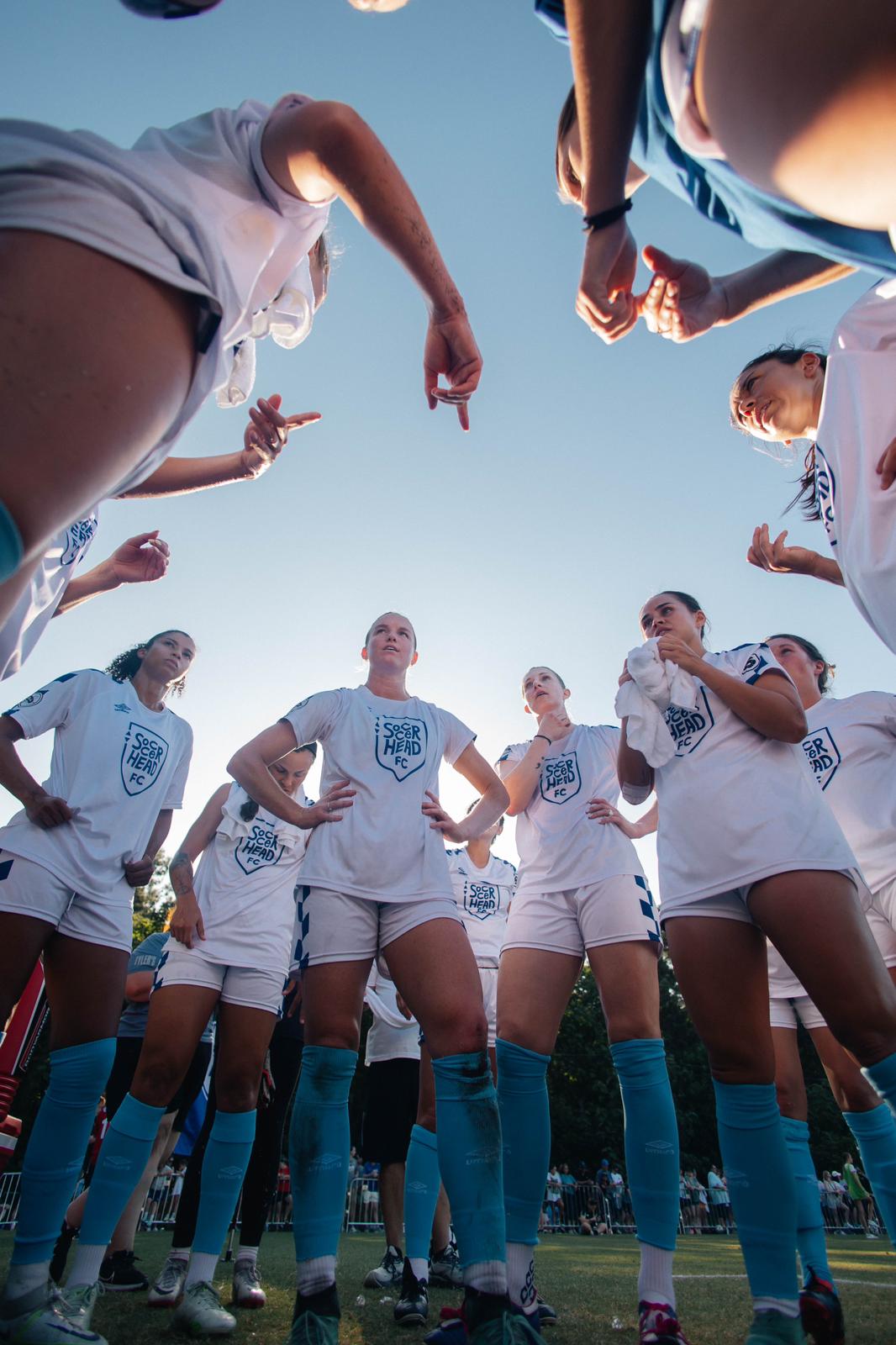
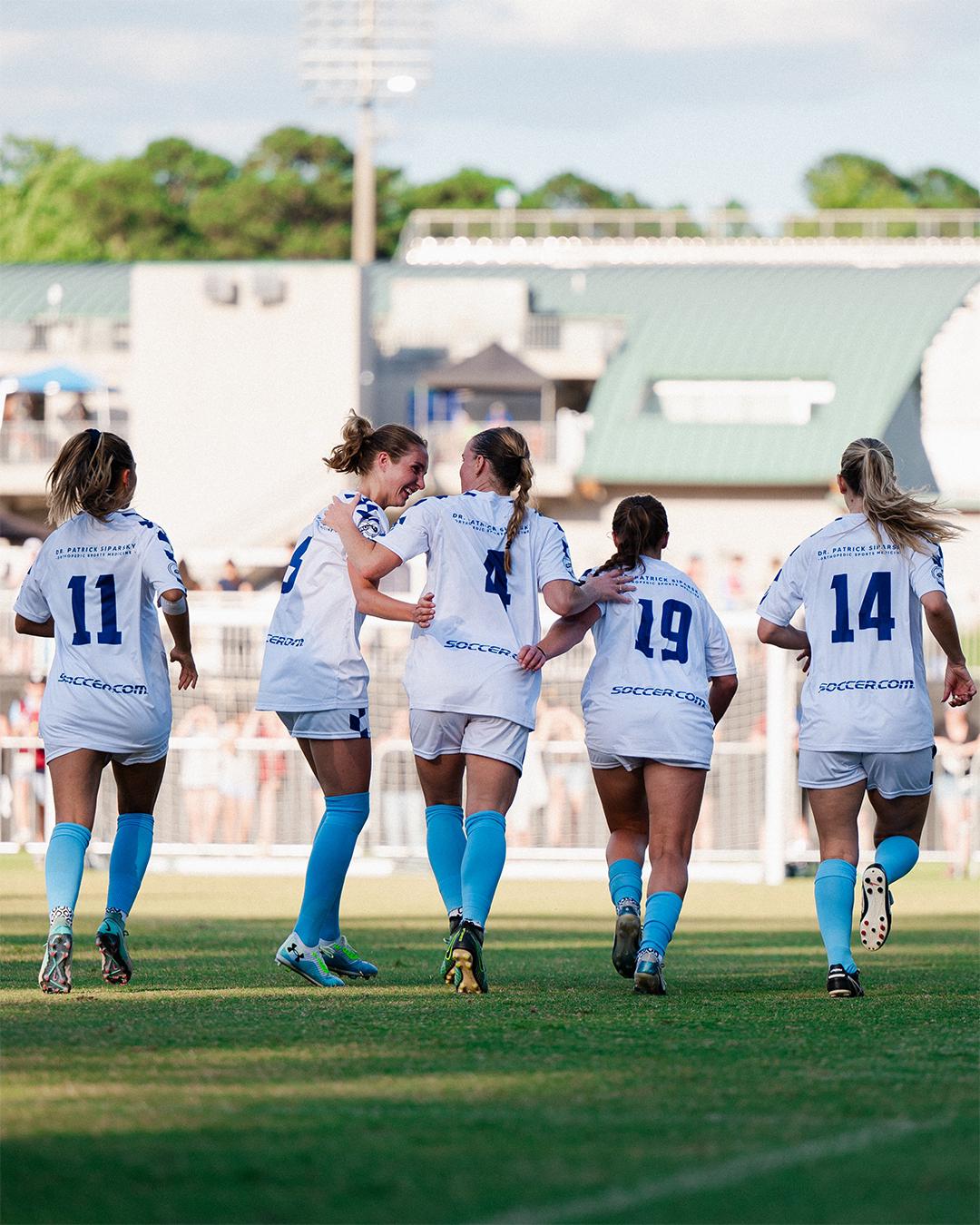
Kovan, a former goalkeeper at Michigan State, found it peculiar that his team would pray before every game. He explains, “If you think your prayers to God will have an impact on the outcome of this game, there’s an undeniable relationship between sport and religion.” This inspired him, along with Miller and DeBree, to design custom, non-denominational tarot cards to highlight the ‘soccer Gods’ and bring unspoken rules of the game into conversation. Miller elaborates, “For us, tarot is like a portal that allows people to open up and talk about what soccer means to them.”
While much of the world views Major League Soccer (MLS) as a league where dreams go to die, figures like David Beckham are reshaping this narrative. In 2007, the legendary English midfielder moved from Real Madrid to LA Galaxy. 11 years later he purchased Inter Miami. By 2021, Lionel Messi, the Argentine forward, arguably the greatest player of all time, had joined Beckham’s roster. Rumors are circulating he’s trying to bring Ronaldo over to see Messi and Ronaldo play on the same team before they retire.
The States have been on the come up. Copa América kicks off on June 20, and with the World Cup coming to North America in 2026, Kovan sees this as a critical moment for the U.S. Men’s National Team. While the U.S. Women’s Team is a certified powerhouse, the perceived inferiority of the men’s team “infiltrates the brain” and affects public perception. “Will we show up [to the World Cup] with this inferiority complex? Or will we prove to the world that we can hold stake in the beautiful game?” Kovan wonders. Footy Temple wants to contribute to the growth of U.S. soccer culture, welcoming those who aren’t deeply immersed in the sport too.

As a lad, I naturally bought into the F50’s undeniable allure — well, actually, my parents did, as I was only 8 when I first laced up my Infrared F50 Adizeros. I was inspired by watching players like David Villa, who wore the cleats and embodied the product’s ethos of speed and precision to a tee — a sentiment that remains present today as I set my uni’s intramural league ablaze like David Villa once did for Barcelona in the early 2010s. In essence, these cleats were my first love. They helped me delusionally compensate for my natural lack of pace, which kept me far from the wing and rather tucked in as a holding/attacking mid for most of my career. But more than that, the cleats made the sport feel so much more real for me as I only continued to fall deeper in love with the beautiful game. Moreover, as many F50-sporting players can attest, the boots' influence reaches far beyond the field. I vividly remember the countless hours playing FIFA Street, where I dressed my players head to toe in F50 tracksuits with retrospectively hideous track capris that left plenty of room for the indoor model of the F50s to be seen. I say this all to illustrate how the line made an irreplicable and long-lasting impression on footballing culture on and off the pitch, and the hype surrounding its reintroduction is an undeniable testament to that.
This new chapter couldn’t have come at a better time for U.S. soccer fans and players alike as we gear up for an exciting era for the sport, highlighted by this summer’s Copa América, and the closely trailing 2026 World Cup, both taking place within the States. The anticipation for the sport and the state of U.S. Soccer as a whole was on another level during the June 10th event hosted at the new adidas Fútbol Society space in Williamsburg. The event featured a collection of their new Copa kits, including Argentina, Mexico, Peru, and Jamaica jerseys on display, along with the highly anticipated F50 cleats, framed against retro adidas memorabilia, adding historical context to the iconic line. To cap off the event, we sat down with Trinity Rodman of the USWNT and Sam Handy, who articulated what everyone felt in the room: Soccer is very much alive and well in the States, and thank god we can put our trusty F50s back in the rotation and wrap up that little decade-long identity crisis adidas put us through.
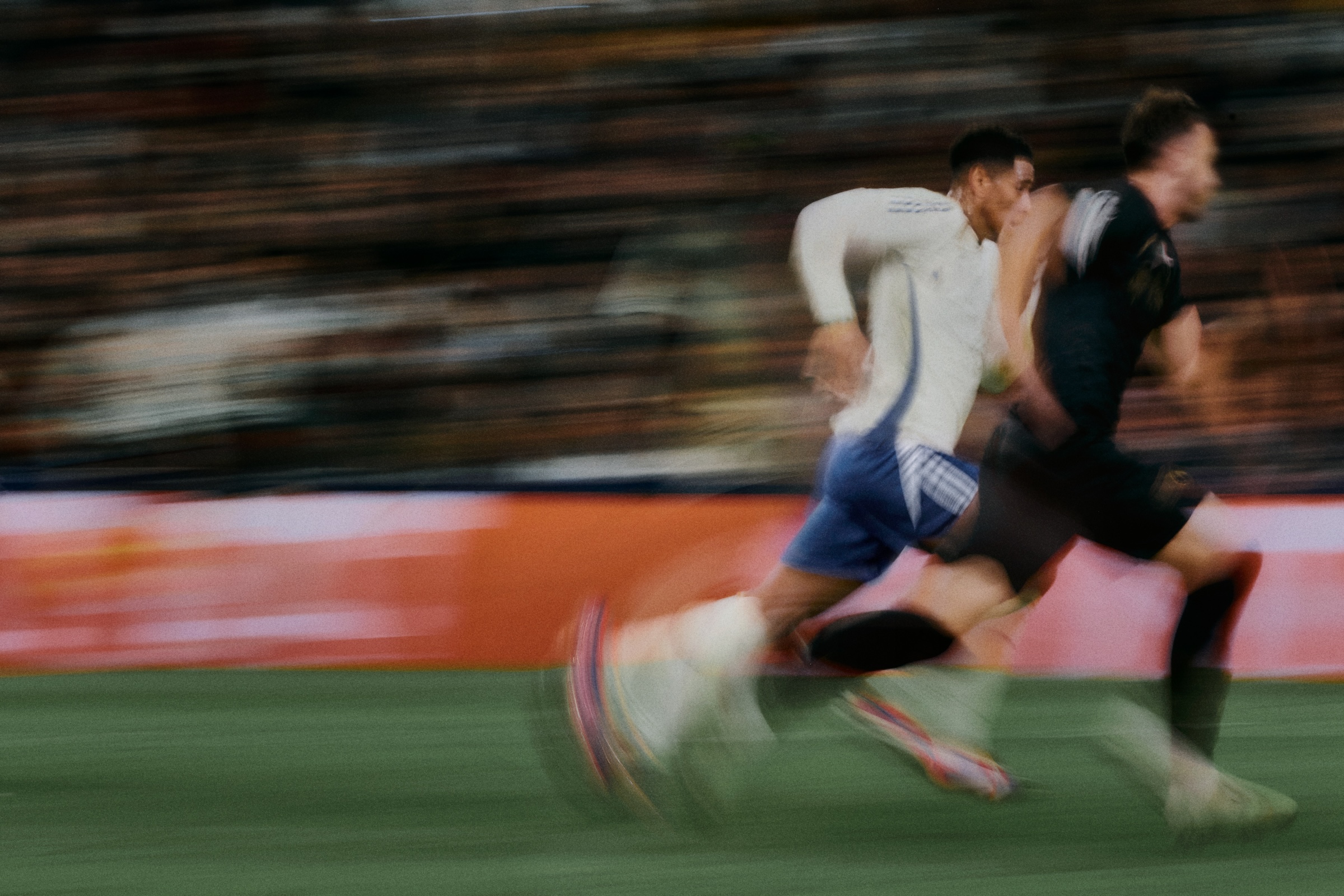
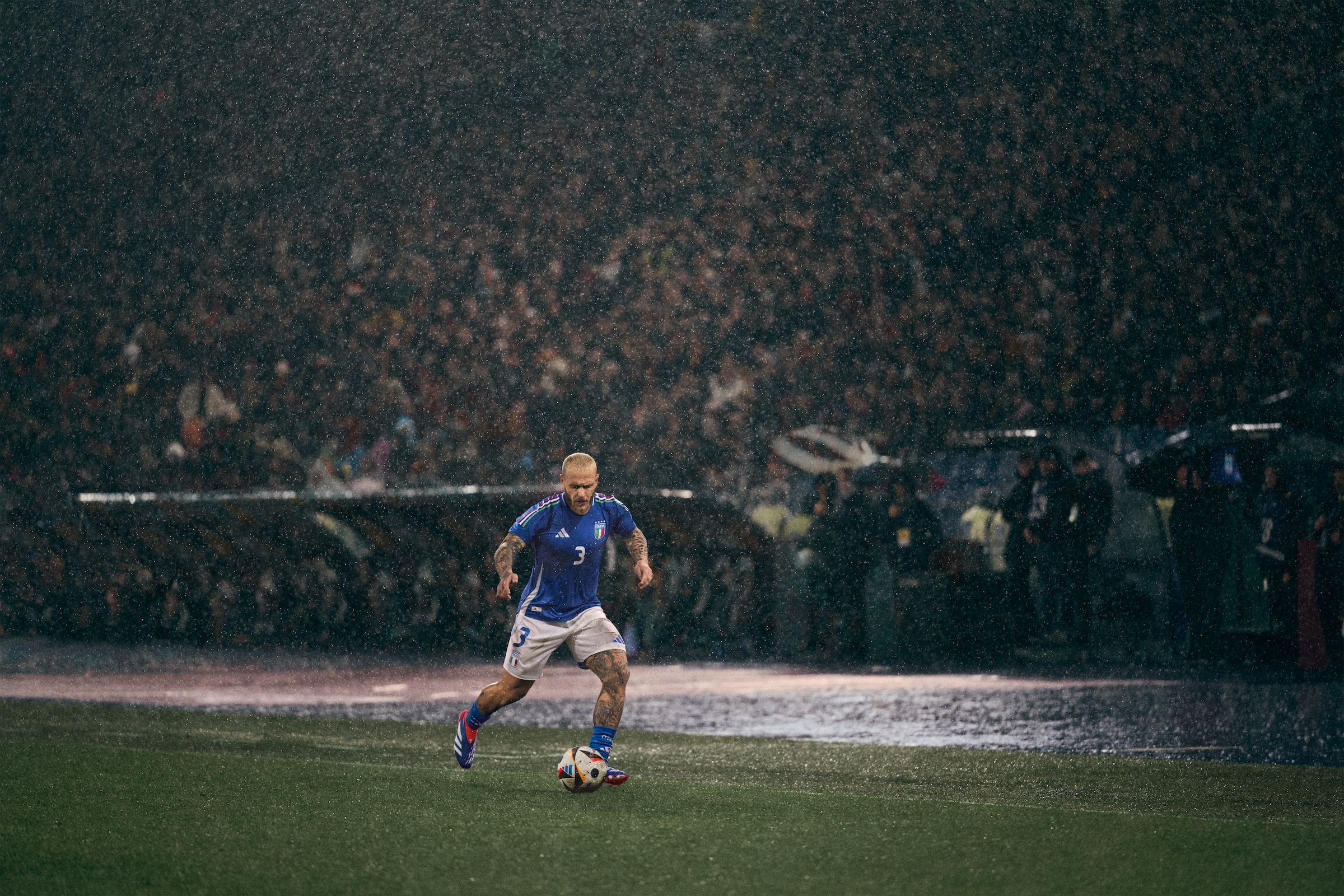
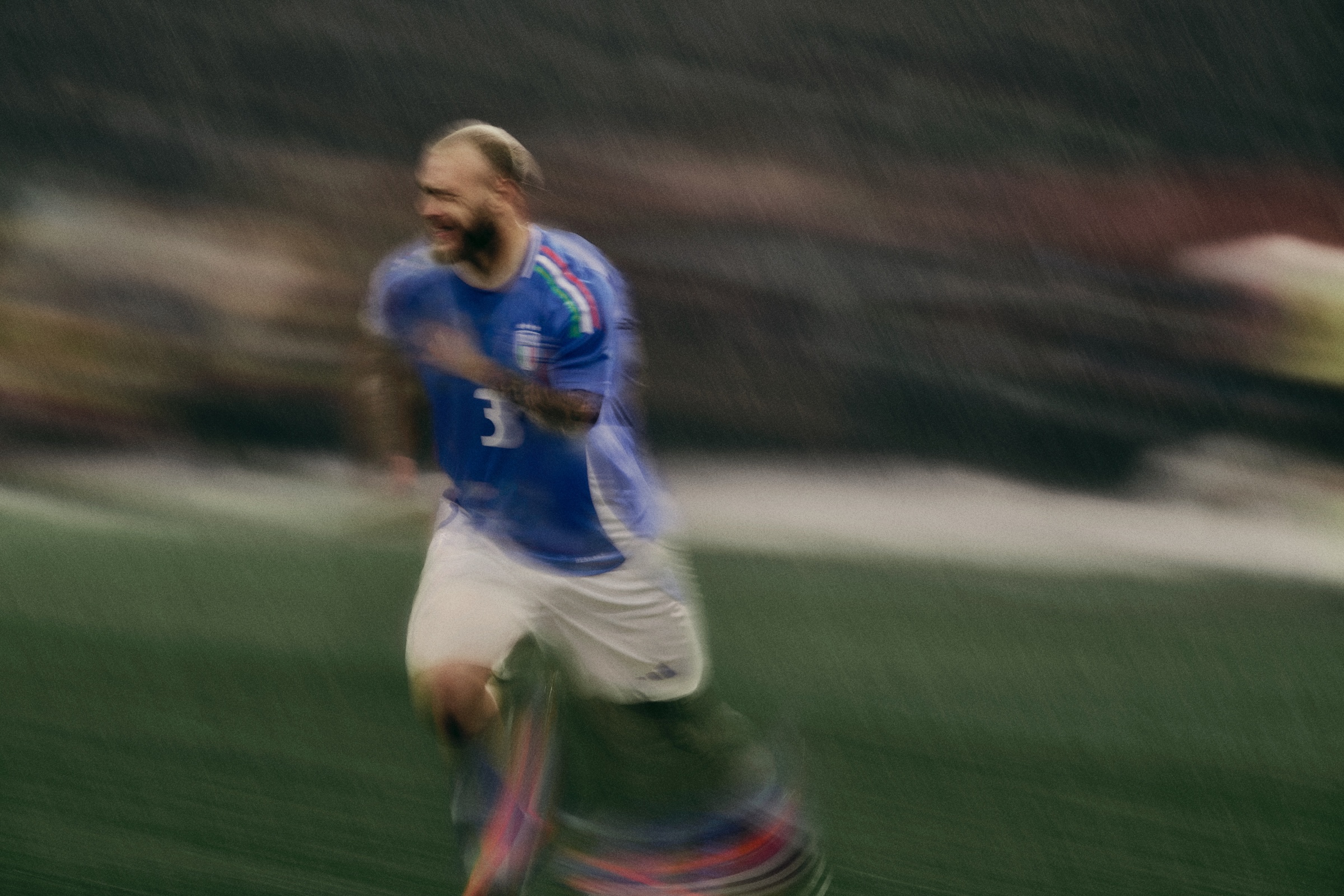
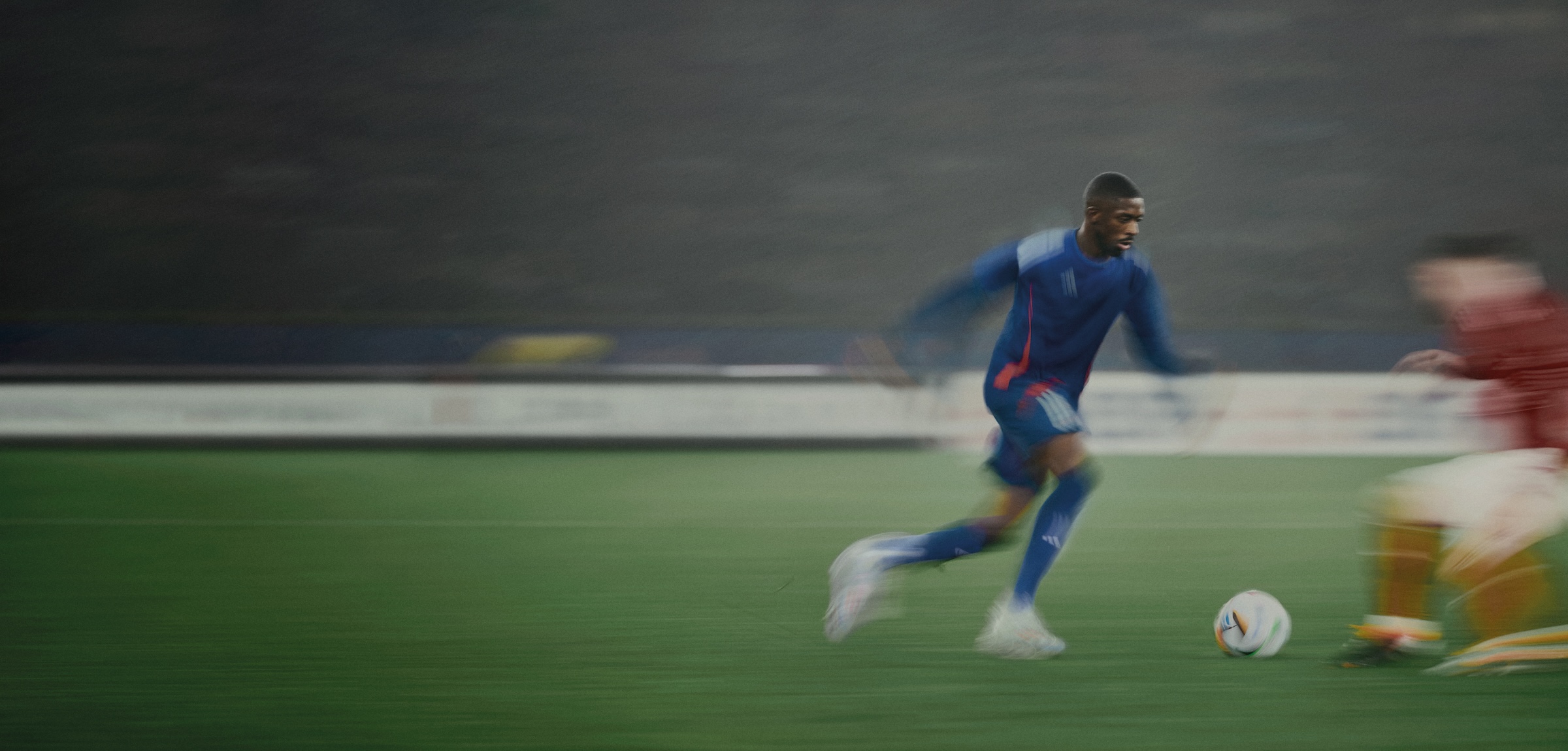
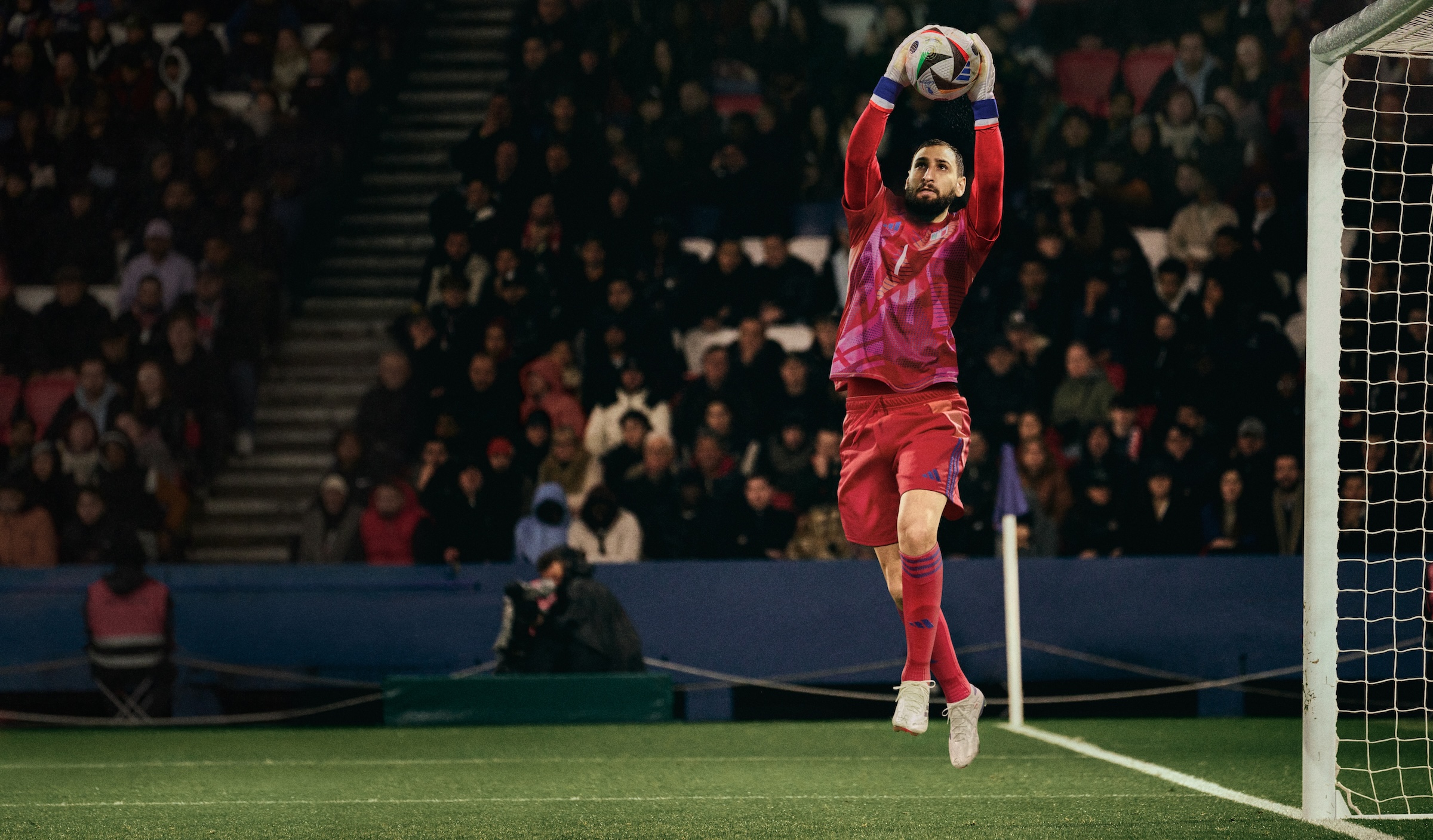
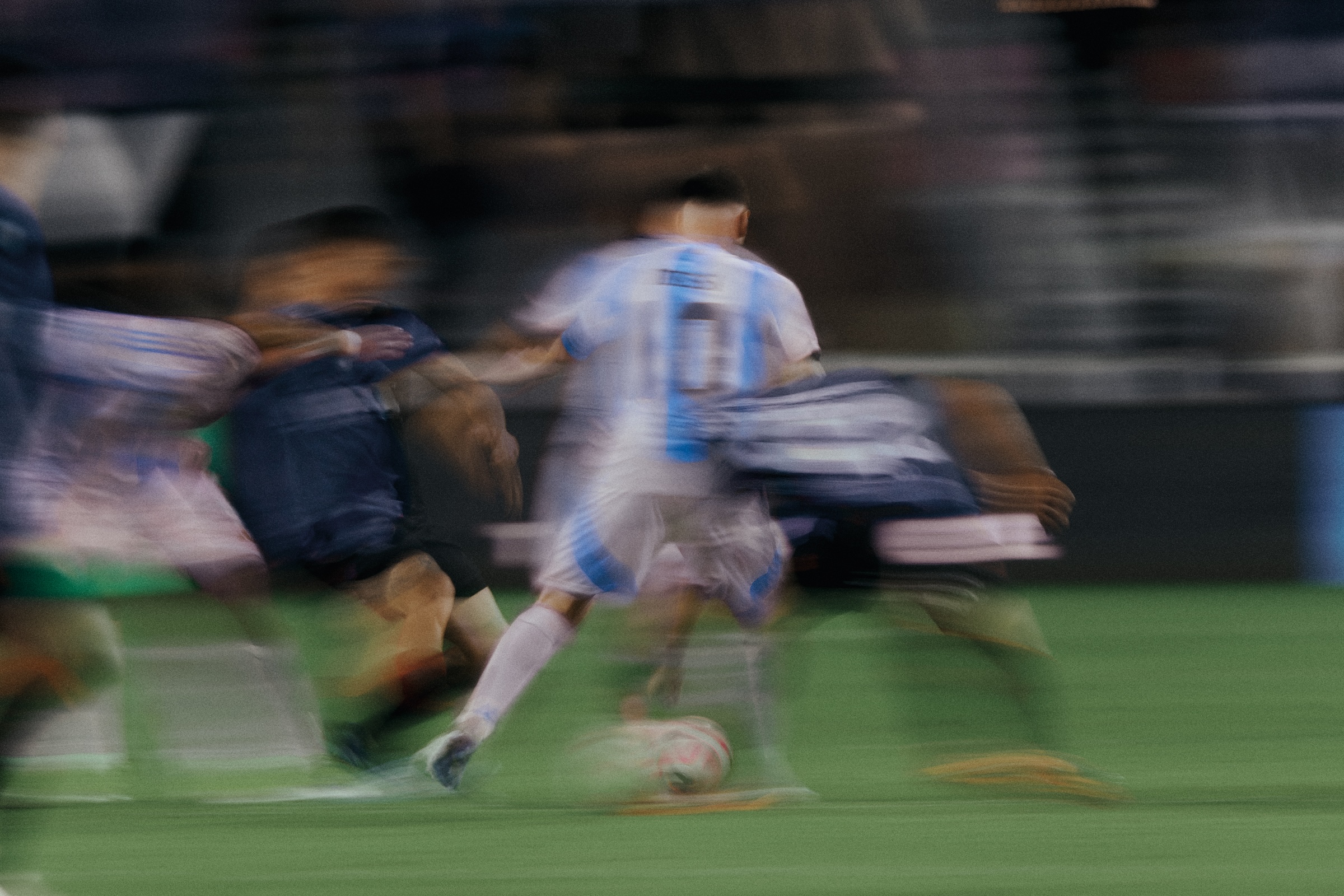
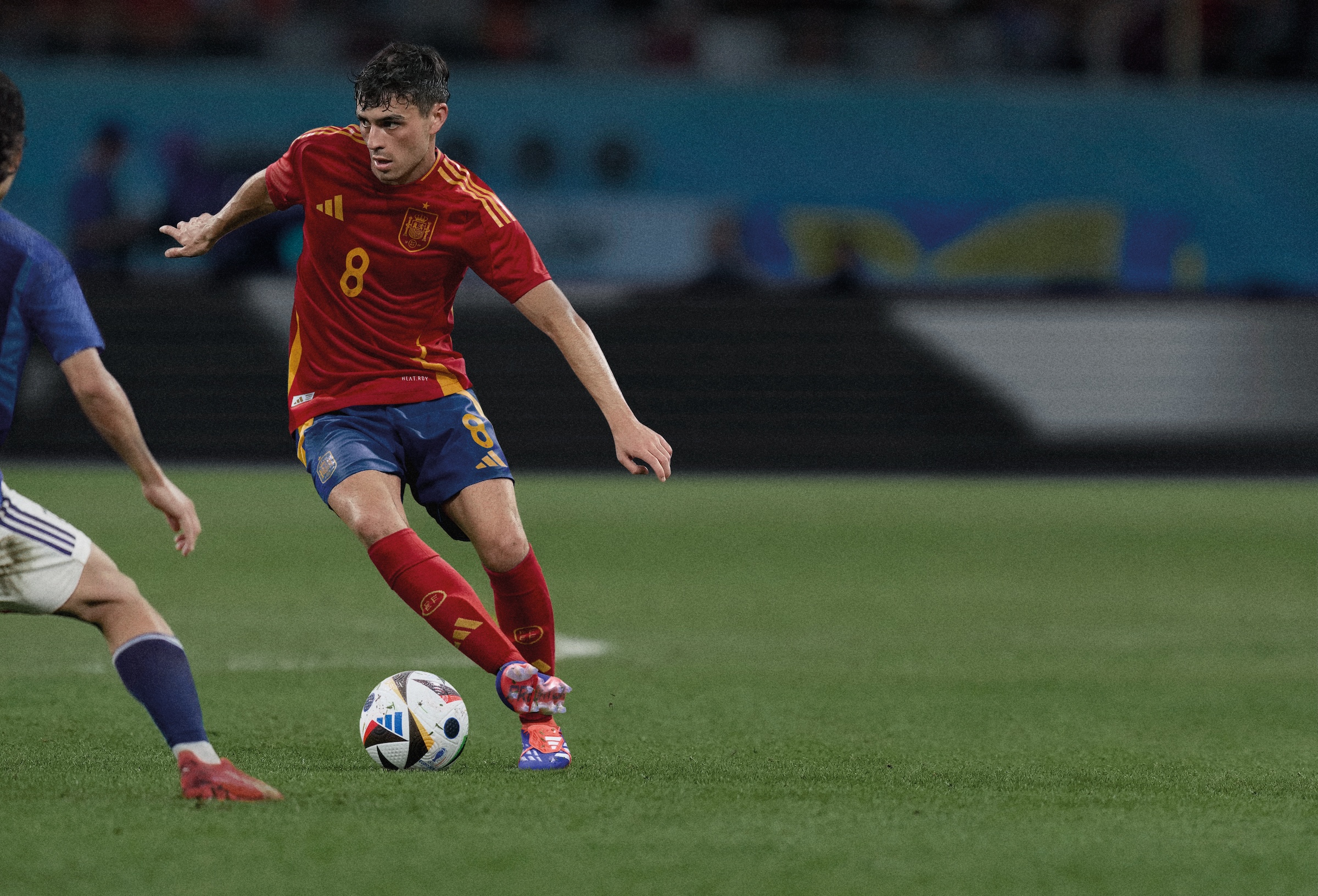
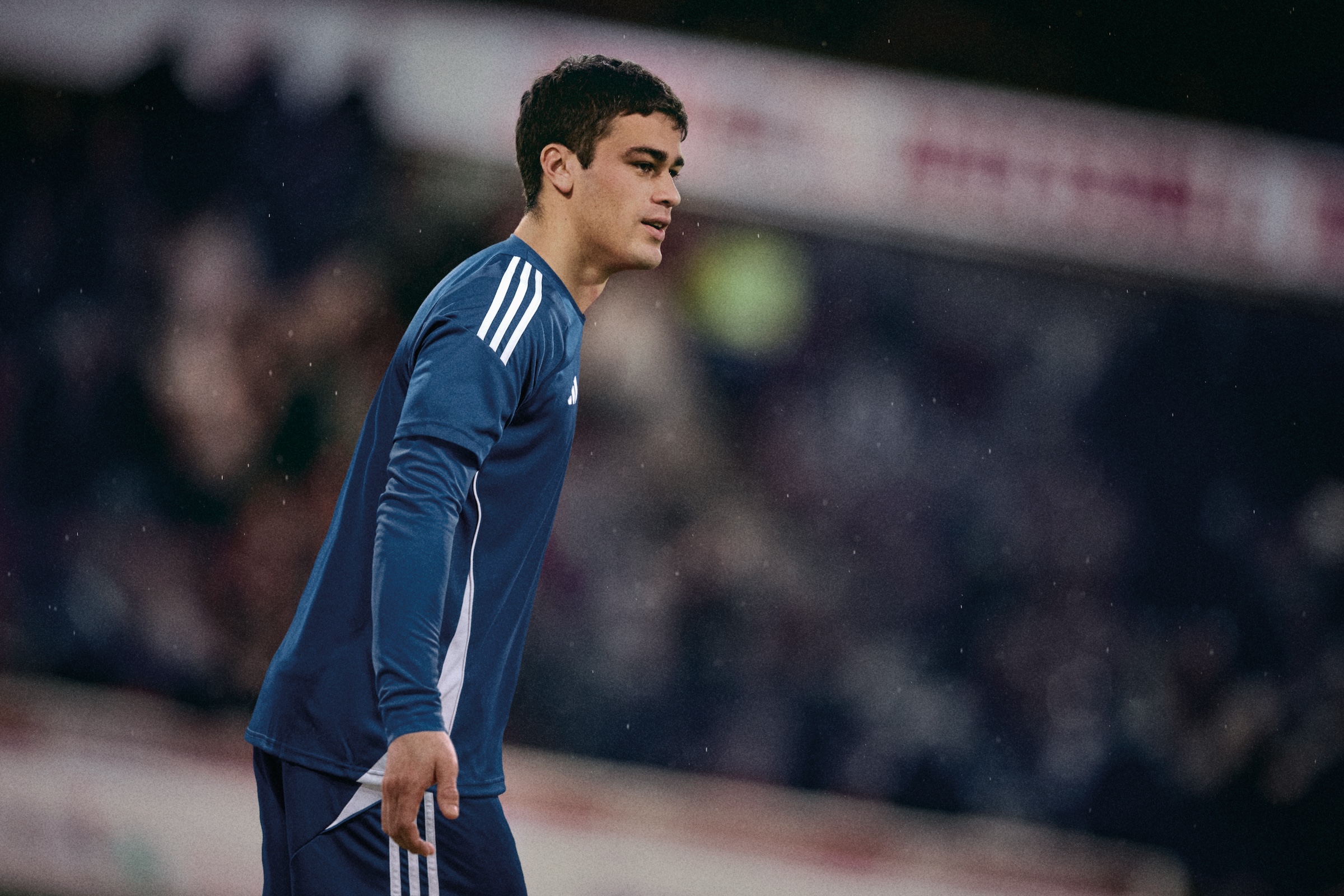
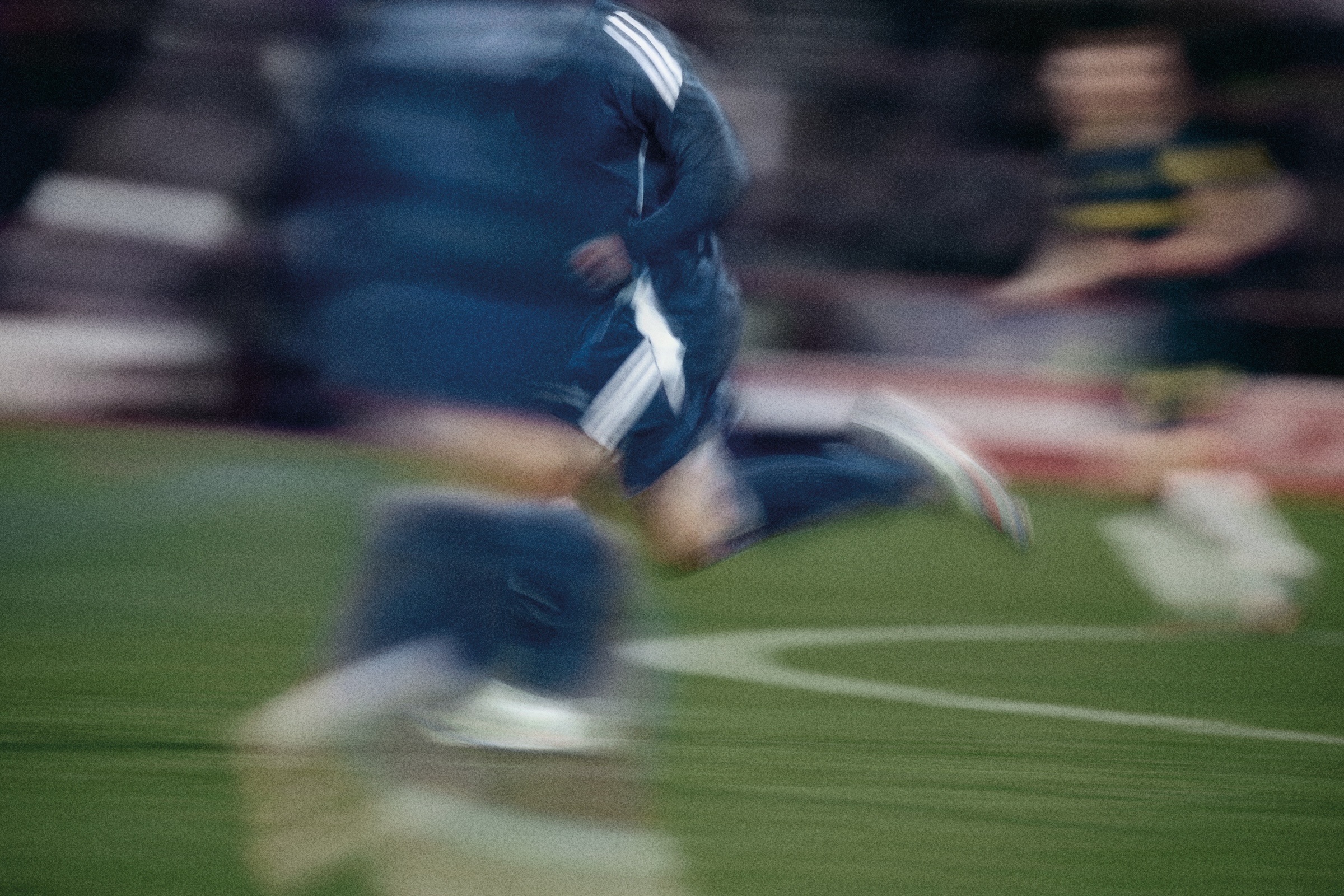
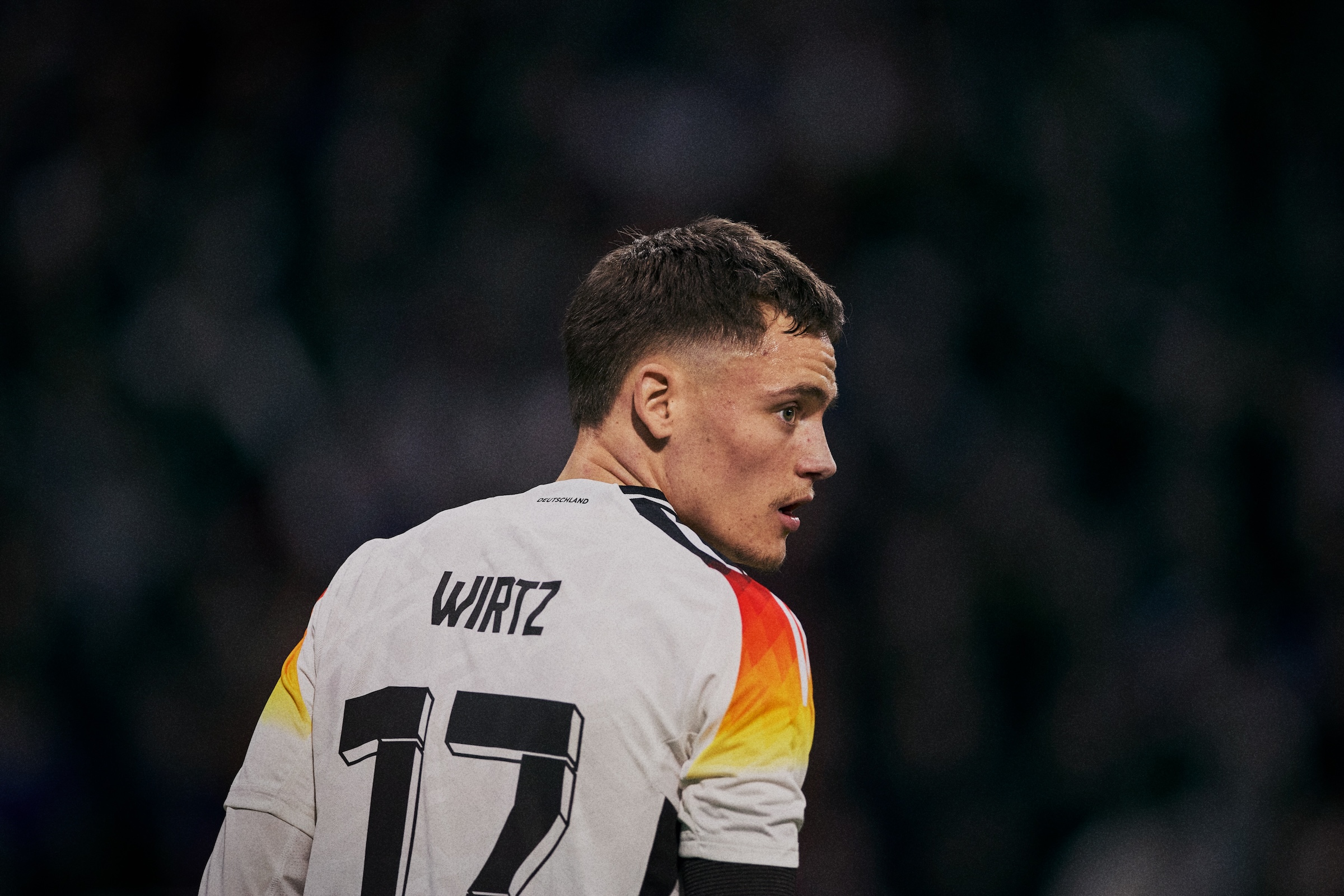
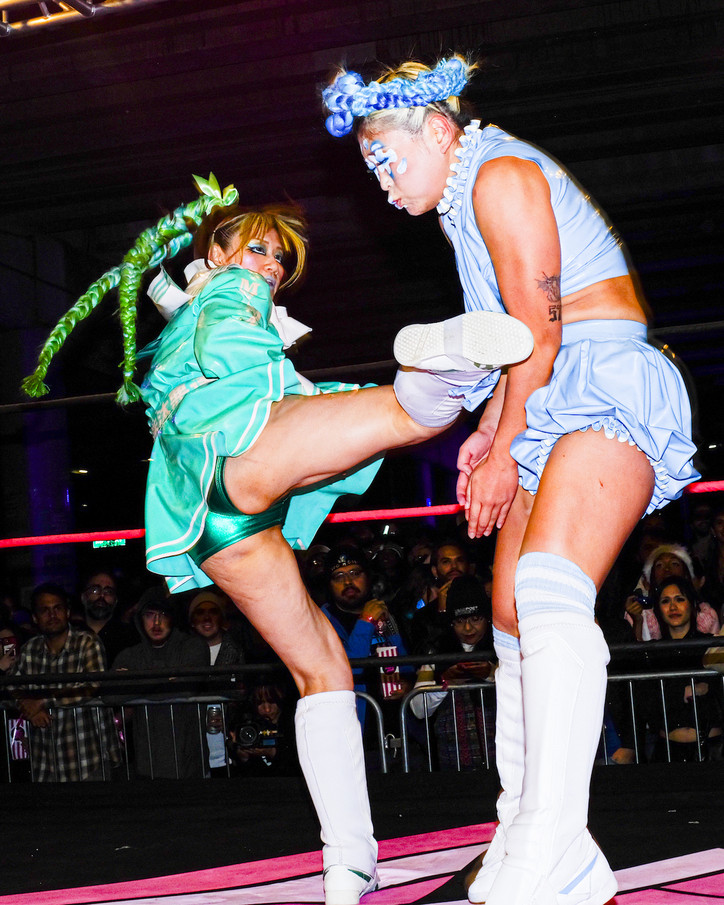
To be a delinquent when softness is expected, to be cute in a sport that demands intimidation — Sukeban leaves nothing untouched. The term “sukeban,” quite literally translating to “delinquent girl,” harks back to 1960s and 70s Japan when girl gangs ruled the streets. Those 'sukeban' were the ones sneaking cigarettes in school bathrooms, founding the 80-member United Shoplifters group, and leading Japan’s sexual revolution. Fast forward to today, and their modern counterparts are revolutionizing pro-wrestling clad in latex and cat ears, defying anyone’s singular definition of womanhood. Sukeban is wrestling for renegades — it’s not about shattering the glass ceiling but cultivating a space without a ceiling at all.
office— You were only 15 when you started wrestling professionally. How did you learn you wanted to be a wrestler?
Bull Nakano— I had a strong sense of independence. I had a strong desire to enter society as soon as possible, earn money with my own hands, and make a living.
How did you decide on your ring name, Bull Nakano?
BN— The decision was made by AJW and Fuji TV's producers. My seniors in pro-wrestling were Dump Matsumoto and Crane Yu, and we all had names of heavy machinery — dump trucks, crane trucks, bulldozers. At first, I was called Bulldozer Nakano, but because the logo was bad, it was changed to Bull Nakano.
What is your favorite move?
BN— There are many, but the most synonymous one is the guillotine leg drop. I am proud to see this moment highlighted on the Sukeban championship belt.
In your matches, you often play a villainous role — do you find those roles more fun?
BN— I didn't like it at first, but once I decided to live my life as a villain, I regained my freedom, just like the sukeban of old. I think it became fun.
You founded Sukeban after retiring and spending some time in pro-golf — two very different sports. What drew you back to the world of wrestling?
BN— I like to think I never left wrestling. When I tried out for the AJW dojo, many people thought I would quit. Many years later, I still haven’t quit. Pro-wrestling never leaves your spirit. I lived in Florida for nine years and I played golf, but in my heart, I am Bull Nakano.
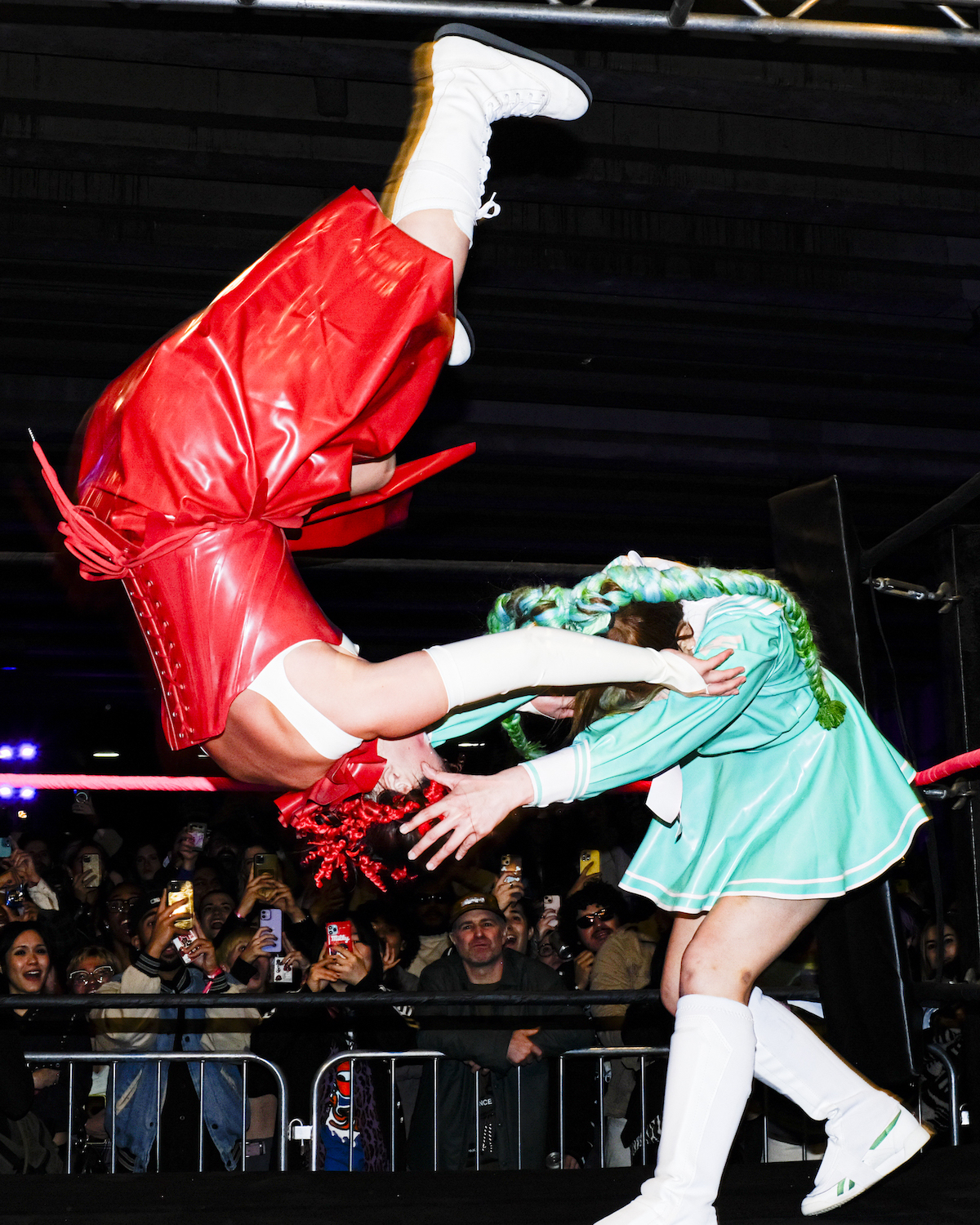
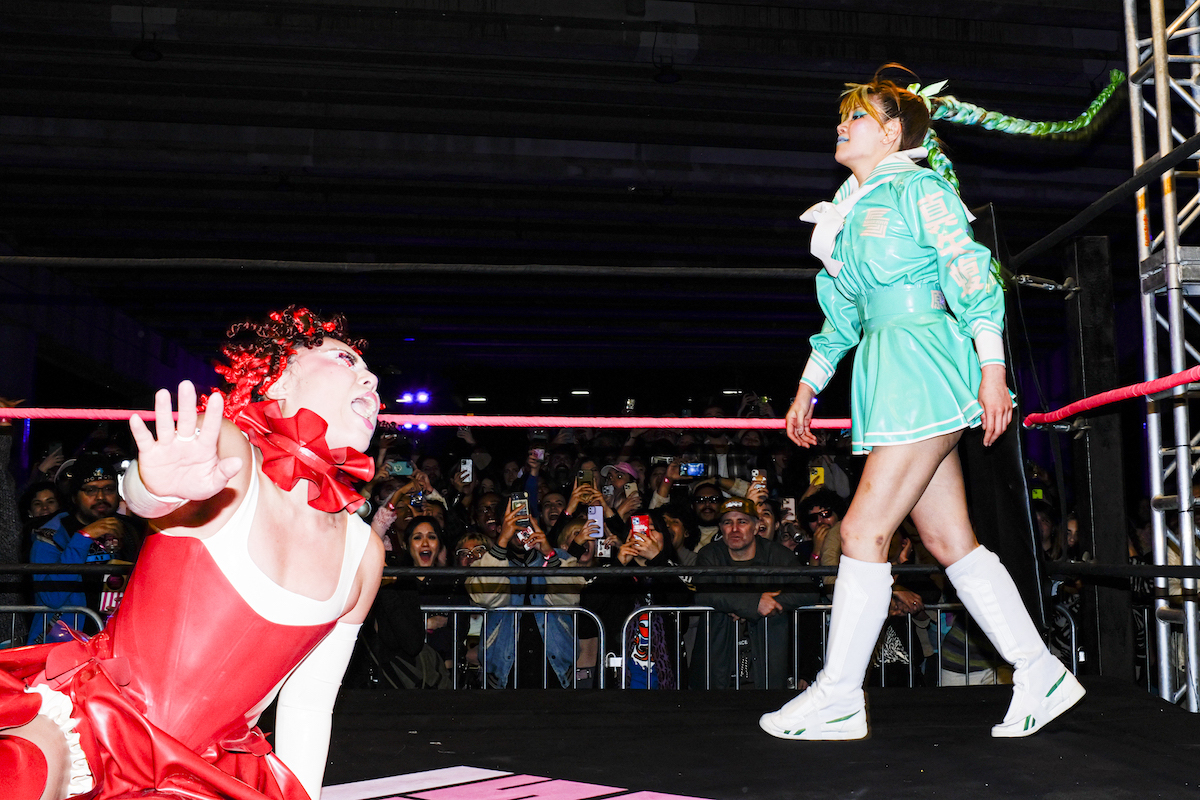
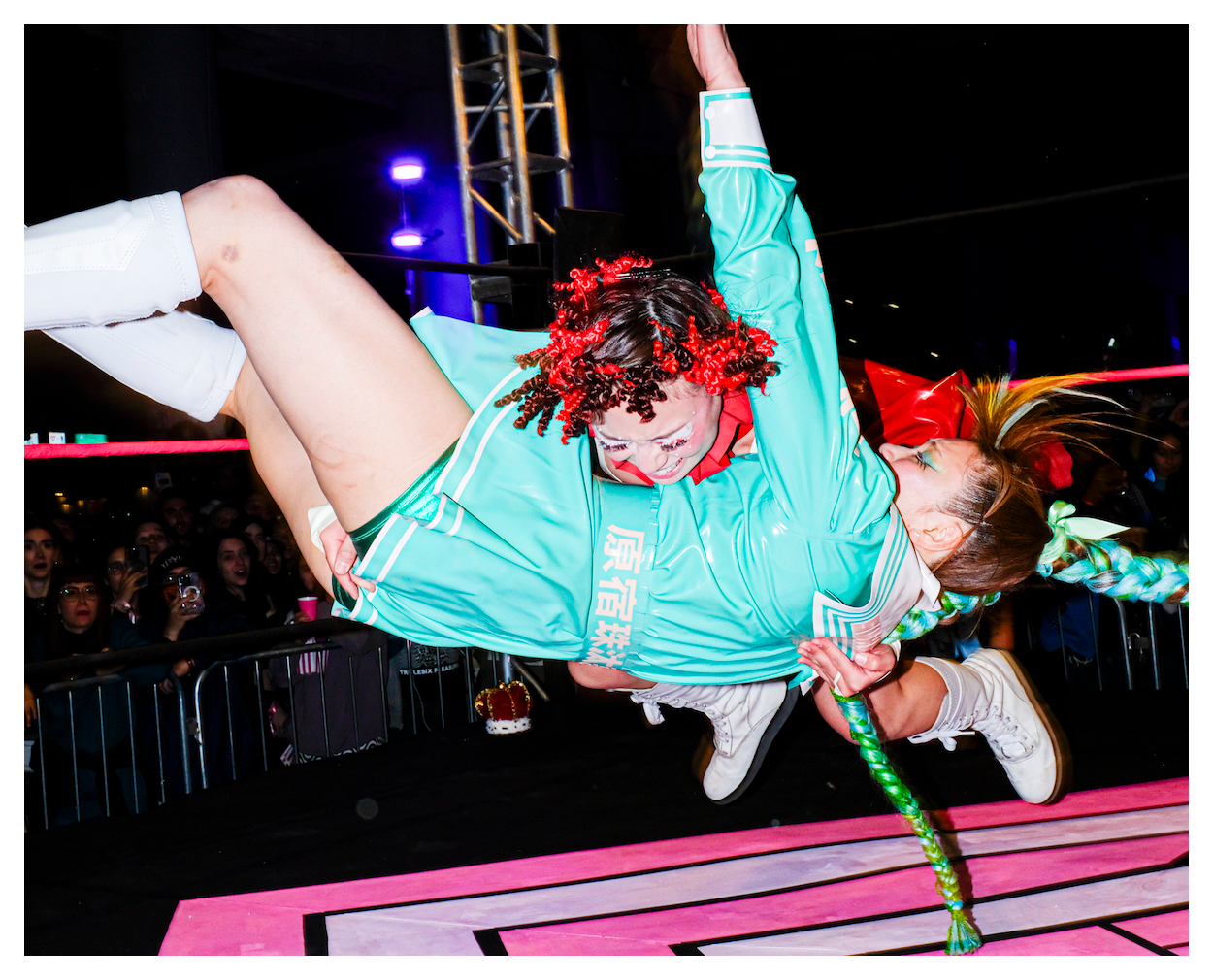
Before founding Sukeban, you wrestled all throughout the 80s and 90s. What are some differences between Sukeban matches and your matches with the AJW?
BN— AJW matches are battles — battles of bodies, thoughts, and aspirations, and we killed each other! But I think the Sukeban matches are a battle against the world. Sukeban has a broader view of the world that even people who have never watched pro-wrestling can get into. It is splendor, speed, luxury, and elegance in battle, as well as character creation unique to Sukeban, with fashion, costumes, gowns, hair and makeup, and nails that have meaning for everyone and people everywhere. This is an eye-catching organization.
The reception to the New York World Premiere was overwhelmingly positive in both the US and Japan. But I told our wrestlers that you can’t live off the success of the previous event. You have to make the next event even better. And then you have to make the next event even better again.
What’s the importance of fashion for the Sukeban girls?
BN— Sukeban intersects with the lively Japanese fashion of the good old days. For Sukeban, fashion is self-expression and a symbol of freedom and power.
Sukeban is different from every other pro-wrestling company. We are treated like movie stars with famous makeup artists and nail artists and Hollywood hairdressers. The wrestlers also wear different costumes, unlike what they are accustomed to. Fashion is extremely important in Sukeban, and I think we have torn down the wall between these worlds. Working with someone like Olympia Le-Tan, I think we can bring interest to Sukeban in a way that nobody in wrestling has ever done.
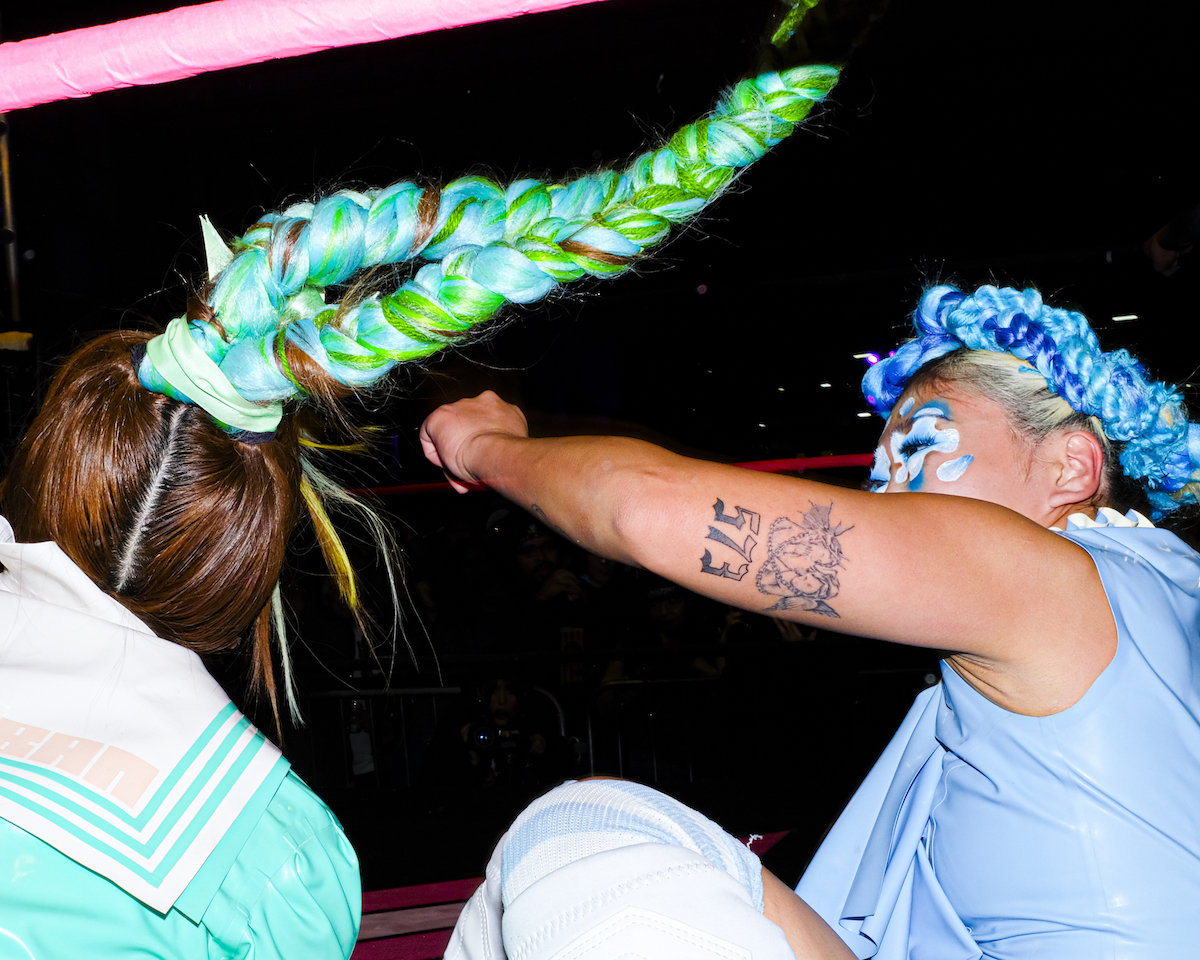
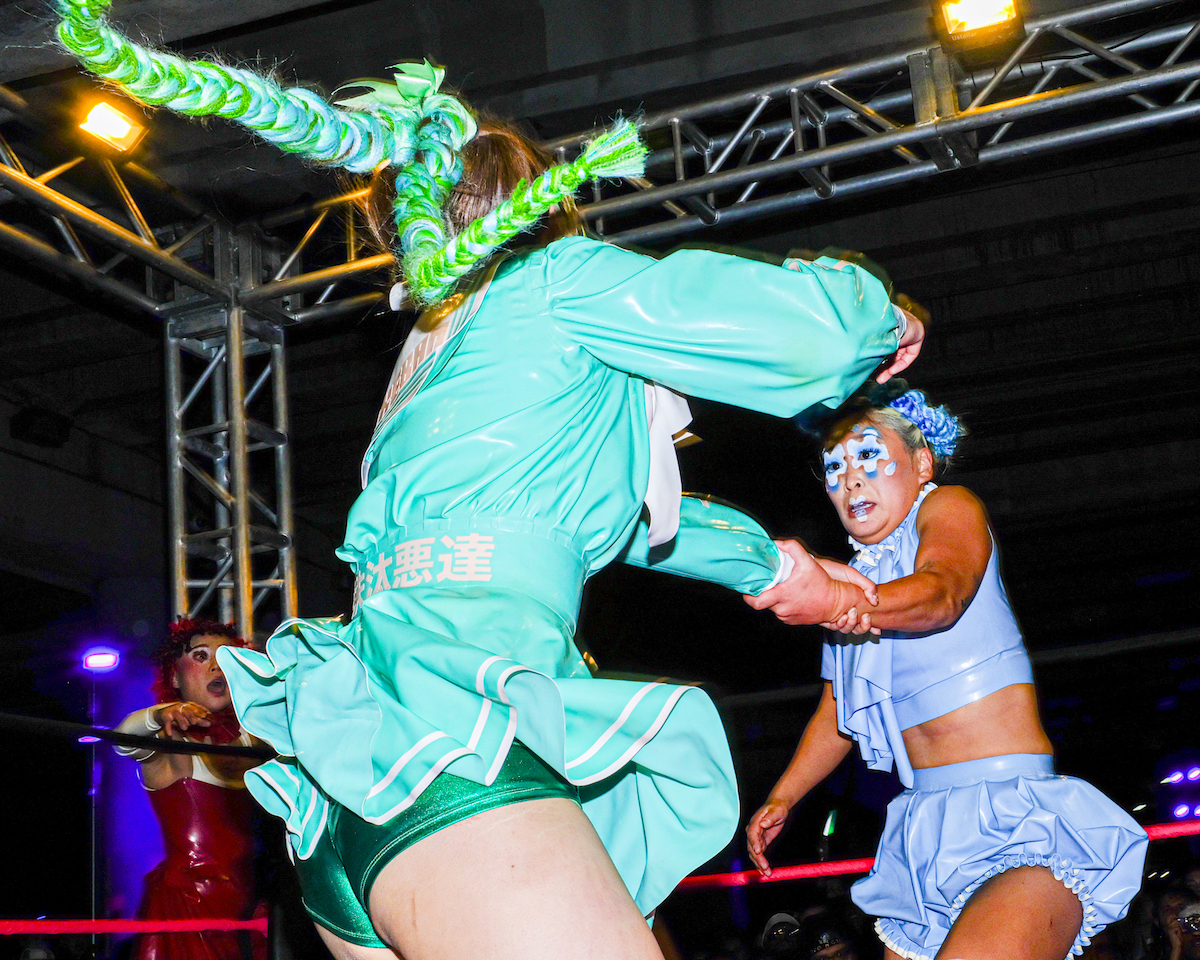
In English, ‘sukeban’ means ‘delinquent girl,’ or the leader of a girl gang. What’s the importance of delinquency, specifically for Japanese women?
BN— I think at the time it was resistance to the transition from a girl to a woman. “I want to stop time. I can't become an adult yet, and I don't want to.” Maybe all the dilemmas, fears, and dissatisfaction turned into rebellion, and they protected themselves by wearing the sukeban armor, makeup and clothes.
Through Sukeban, how do you hope to advance the world of wrestling?
BN— Sukeban's philosophy is to bring the best female professional wrestlers from Japan to audiences around the world. This includes not only wrestling fans, but also new fans who are new to women's wrestling. We believe we have the most talented roster in the world. We will continue to increase the number of wrestlers. We want to provide the best platform for wrestlers to flourish, while also incorporating new elements for fans to engage with Sukeban wrestlers and content, such as anime, manga, fashion, and culture.
When people watch Sukeban, they are going to have a fun time. I think this is a given. But I strive for more. I want people to wake up the next morning and be inspired by Sukeban. I want people to watch Sukeban and know that they can leave their comfort zones, fight hard, and do their best every day.
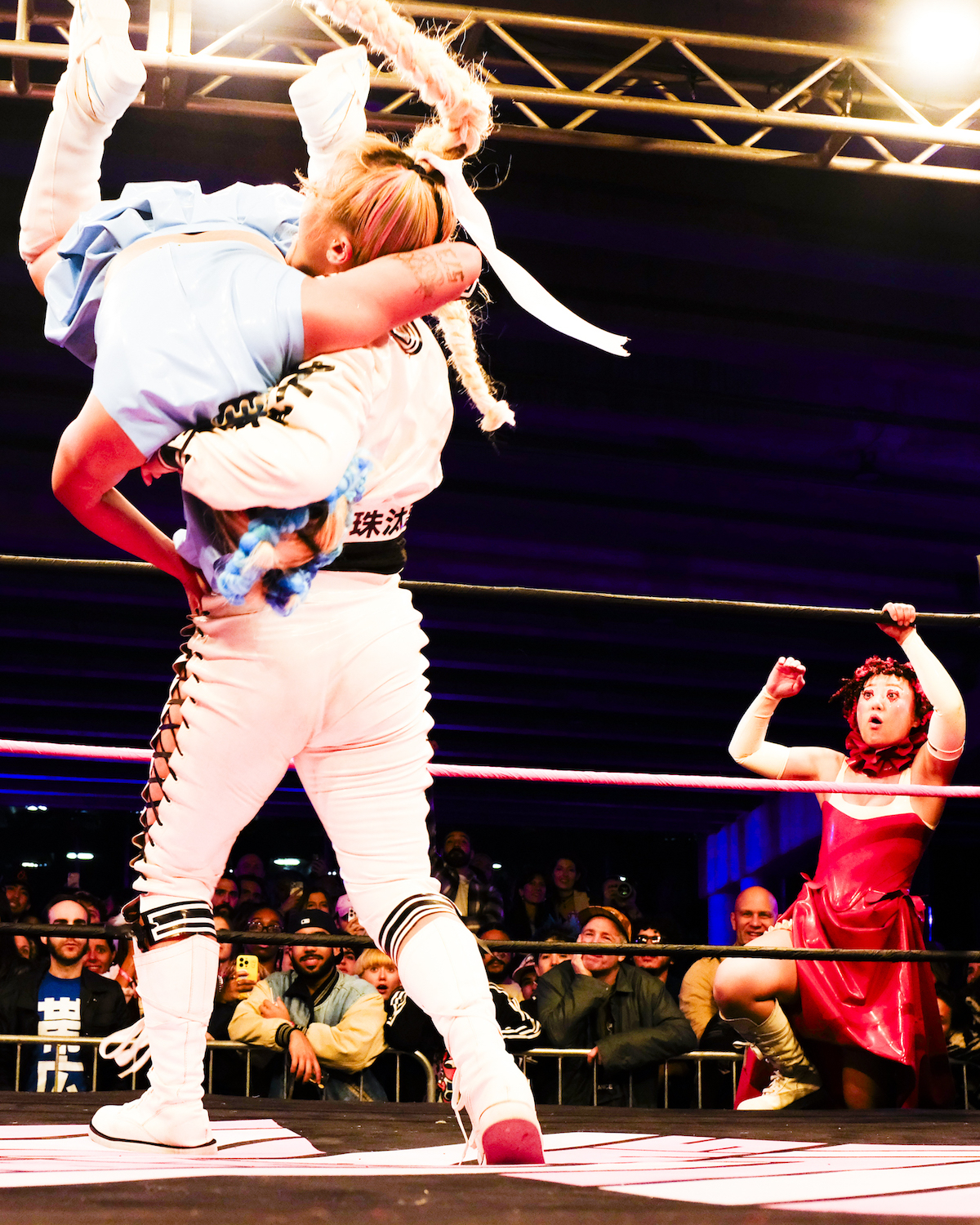
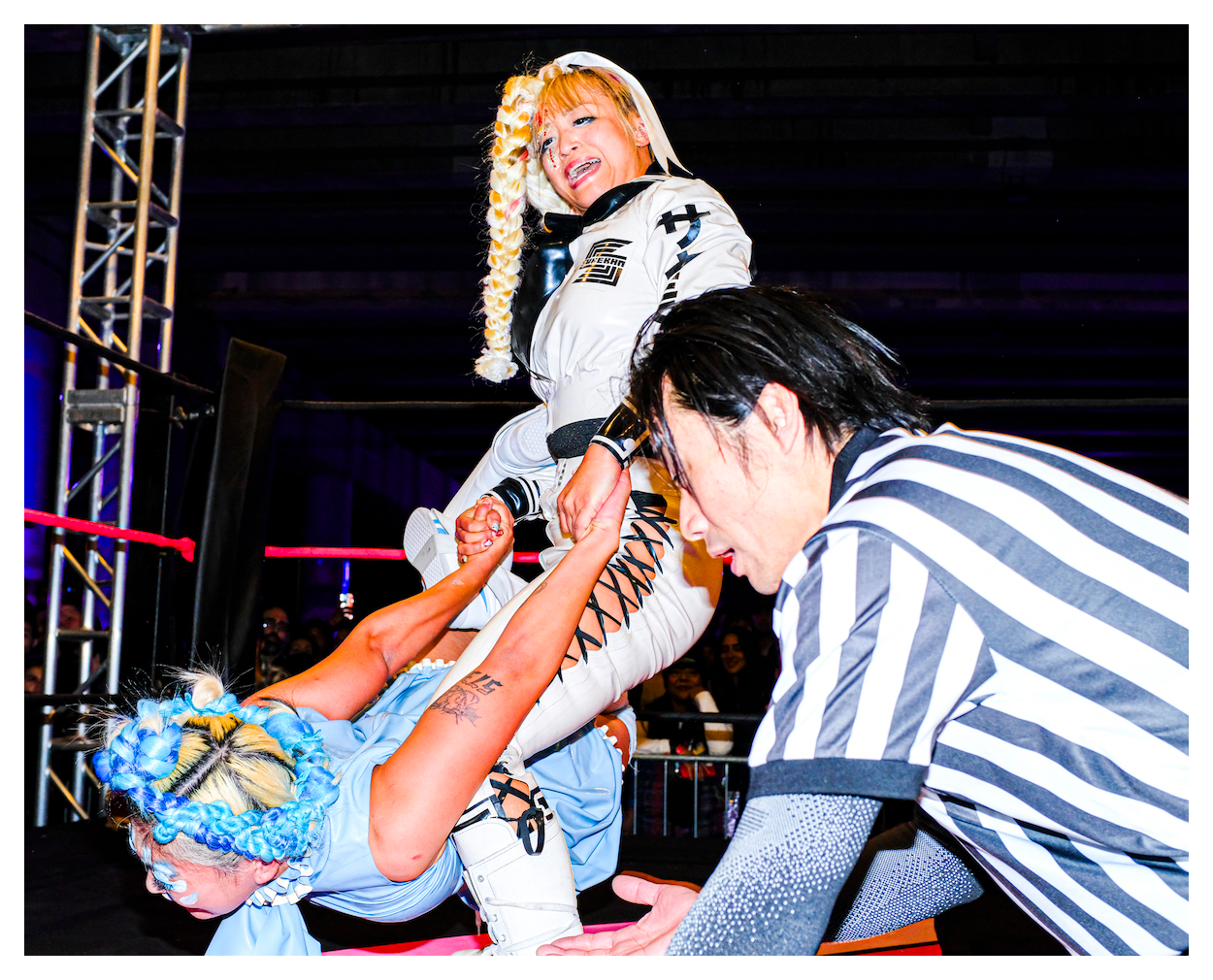
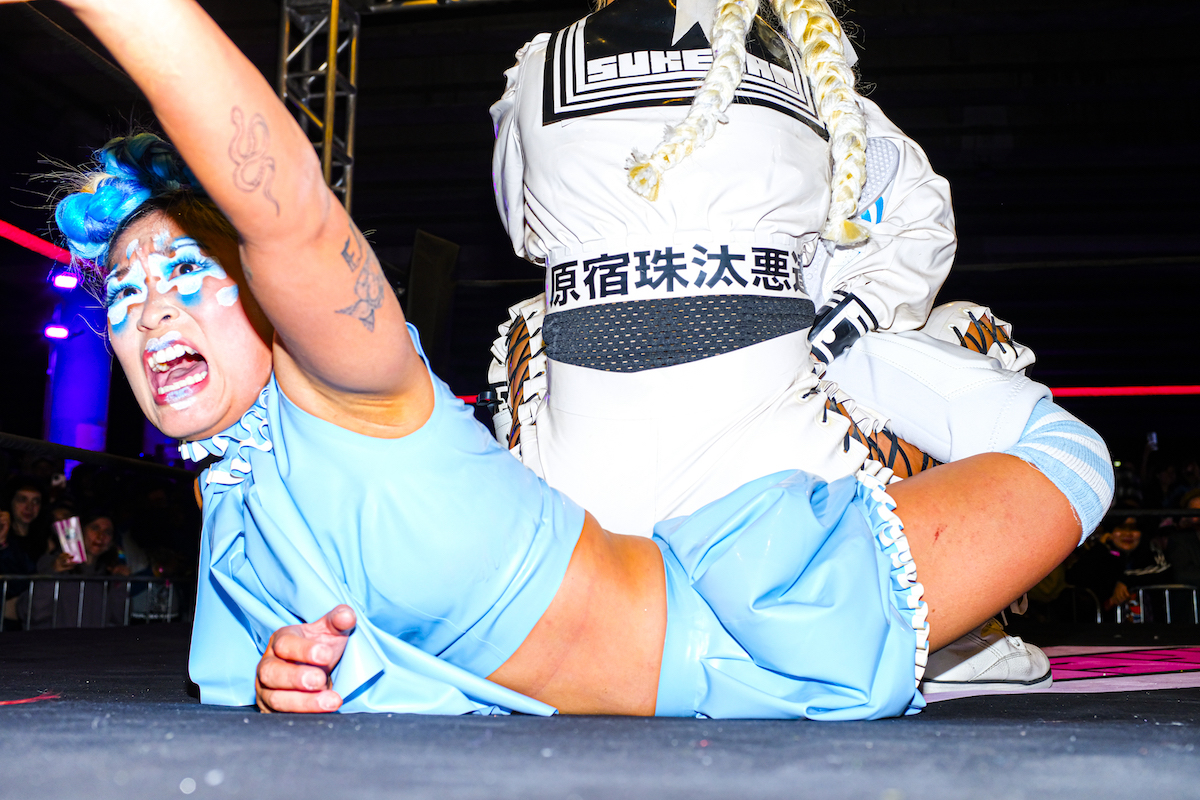
So far, what has been the highlight of your wrestling career?
Countess Saori— I have had many highlights in my wrestling career, but I haven’t reached the biggest one that I envision yet.
Crush Yuu— I think my career highlight is getting to travel around the world to be the best wrestler I can be. I have traveled to the UK for many years and won championships. Wrestling is my life. That’s why I care so much about Sukeban in America. I’m not just satisfied with New York and Miami. I have high expectations for Sukeban, and I hope it will continue to grow. It will help me be one of the top wrestlers in the world.
Atomic Banshee— I think my biggest highlight it still to come.
While working with Olympia Le-Tan on your costumes, what types of characters are you trying to represent and why? Why go with a cute costume when wrestling tends to demand fear and intimidation?
CS— The costumes are cute yet scary. Scary yet cute. I believe this duality is the greatest charm.
CY— The costumes Olympia created are very unique, and we enjoy bringing these new characters to life. In Japan I am Yuu, but when I wear my Cherry Bomb Girls costume I am Crush Yuu, and it allows me to present a whole new side of myself.
AB— Female punk icons like Siouxsie Sioux, Jordan (Pamela Rooke), Soo Catwoman, etc., exude a powerful and aggressive appearance. By adding KAWAII to the rebellious spirit of such women, it becomes unbeatable. I believe Olympia expresses this in a modern yet retro fashion.
What’s your favorite move?
CS— I like to win matches with a Suplex.
CY— Despite what I look like, I like to run [laughs] I do a move called the cannonball, where I run across the ring, flip into my opponent, and attack them with my back. Then I also win matches with a splash, where I climb the ropes, swing enough to almost break the ring, and then jump onto someone.
AB— Sticking my thumb in someone’s eye.
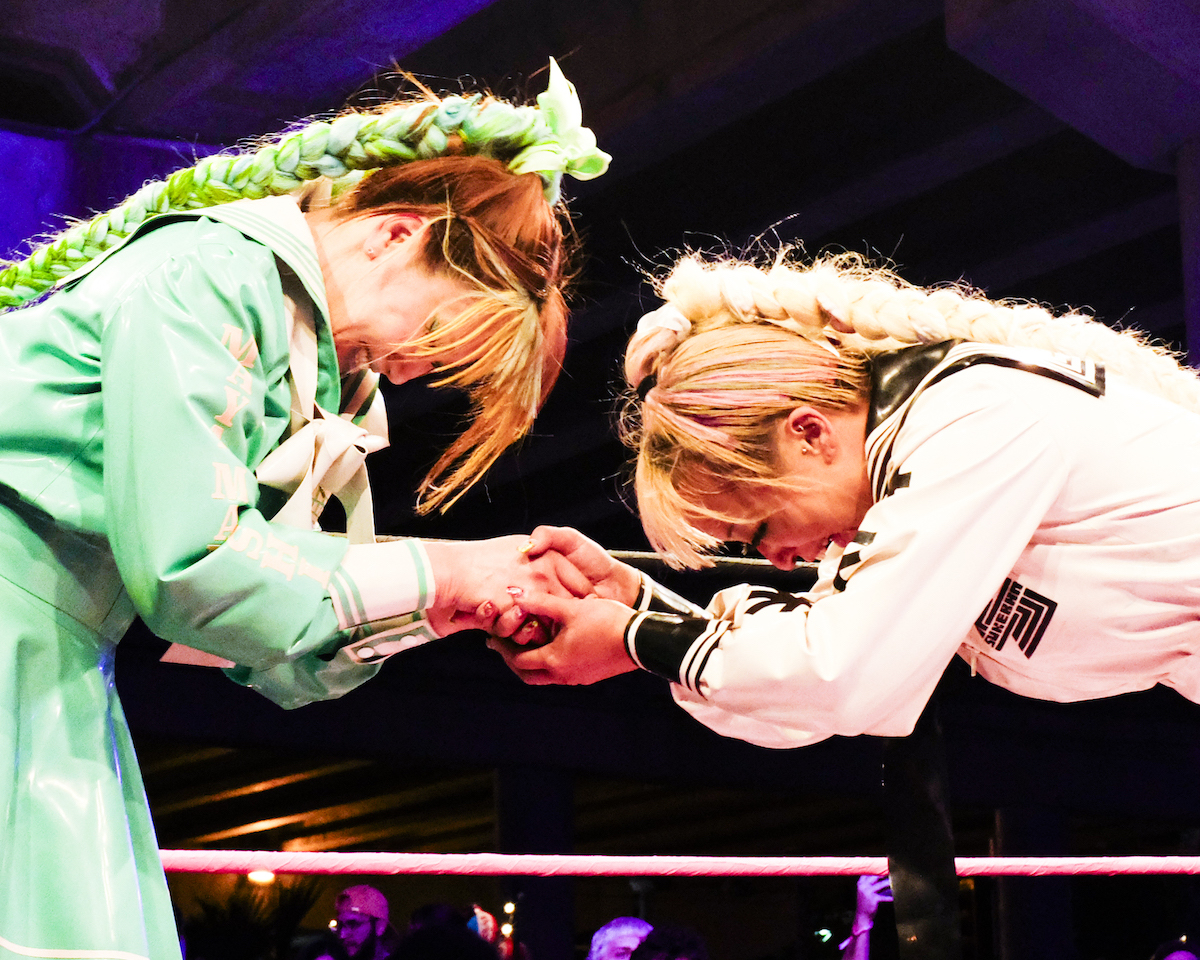
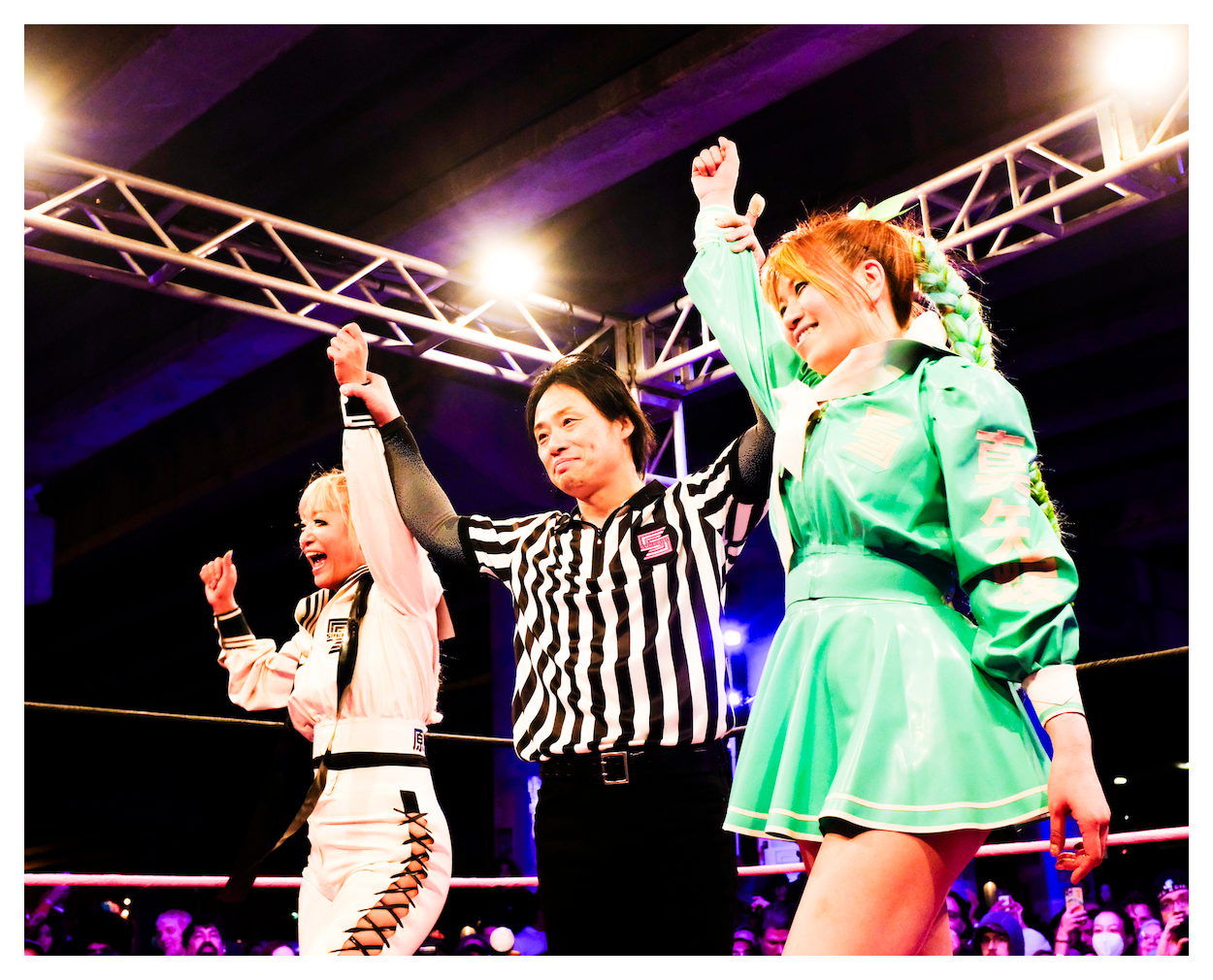
What makes Sukeban stand out in the world of Japanese wrestling? What’s the importance of delinquency, specifically for Japanese women?
CS— Sukeban has big arenas, top-notch lighting, and the best comrades. I believe Sukeban can create an extraordinary experience in Japan that goes beyond the ordinary. I think the essence of delinquency is not caring about others' opinions. Being true to oneself. Living as the coolest version of oneself. There's no need to conform to others.
CY— Sukeban has a special makeup, fashion, and characters. These are the best things, and you can only see them in Sukeban. I want to keep looking for new and exciting things in the future without getting caught up in the present. I am a strong Japanese woman, and I want the whole world to know it.
AB— I think what sets Sukeban apart is the emphasis on fashion and visuals, which has been lacking in the wrestling world until now. And also a very multifaceted interpretation of the concept of pro wrestling, incorporating so many different new elements to make it easier for new fans to comprehend. I think delinquency in women is fascinating. There is a hidden beauty in the immoral.
